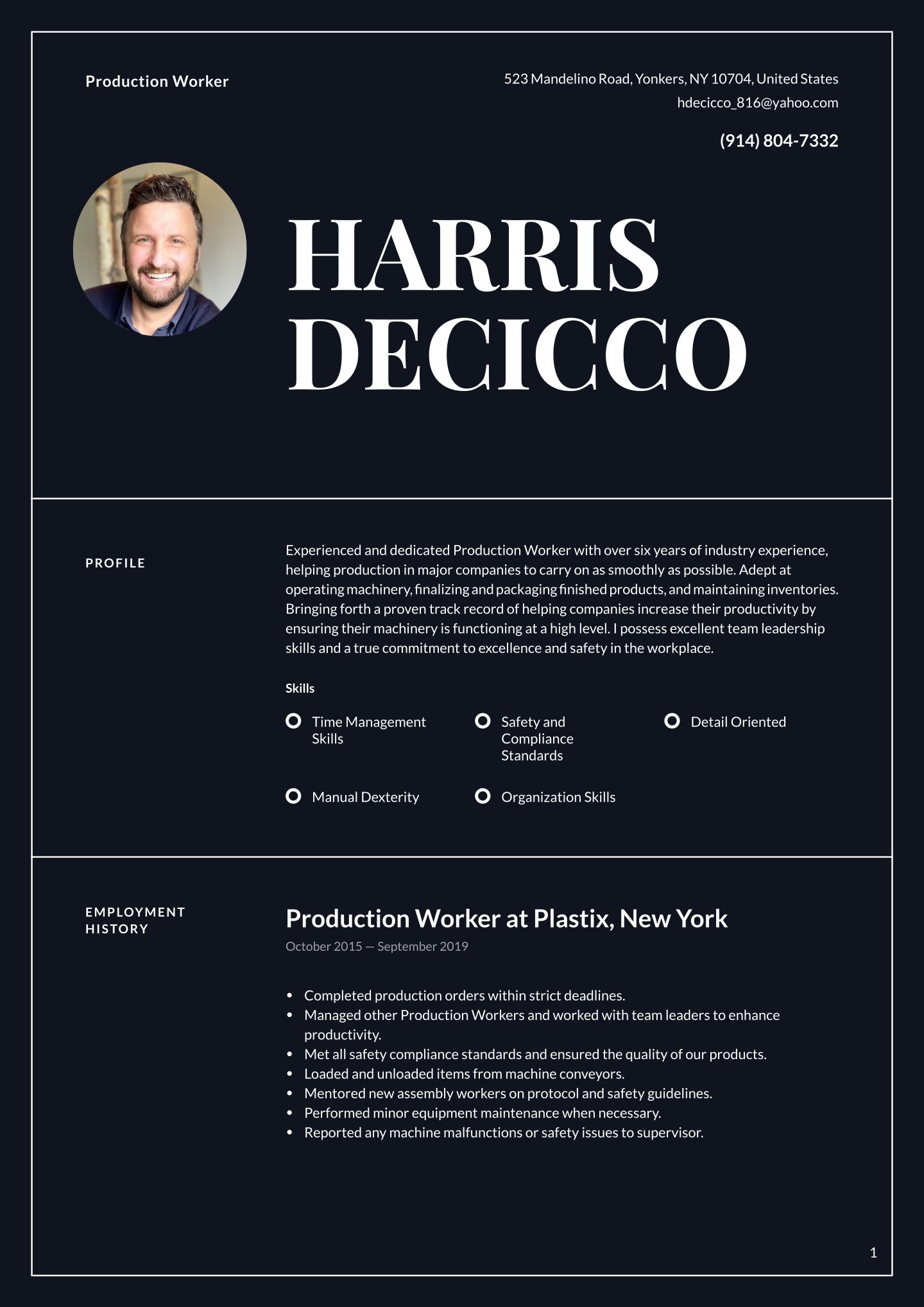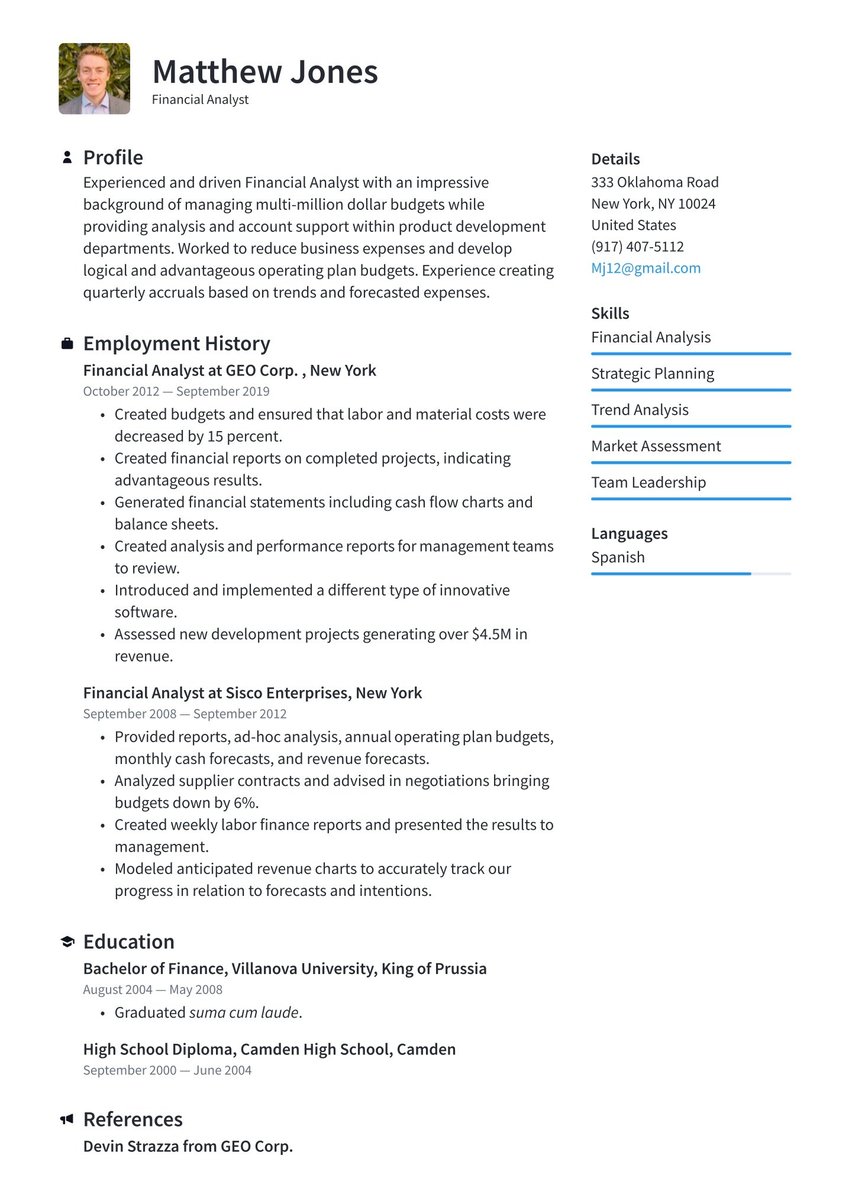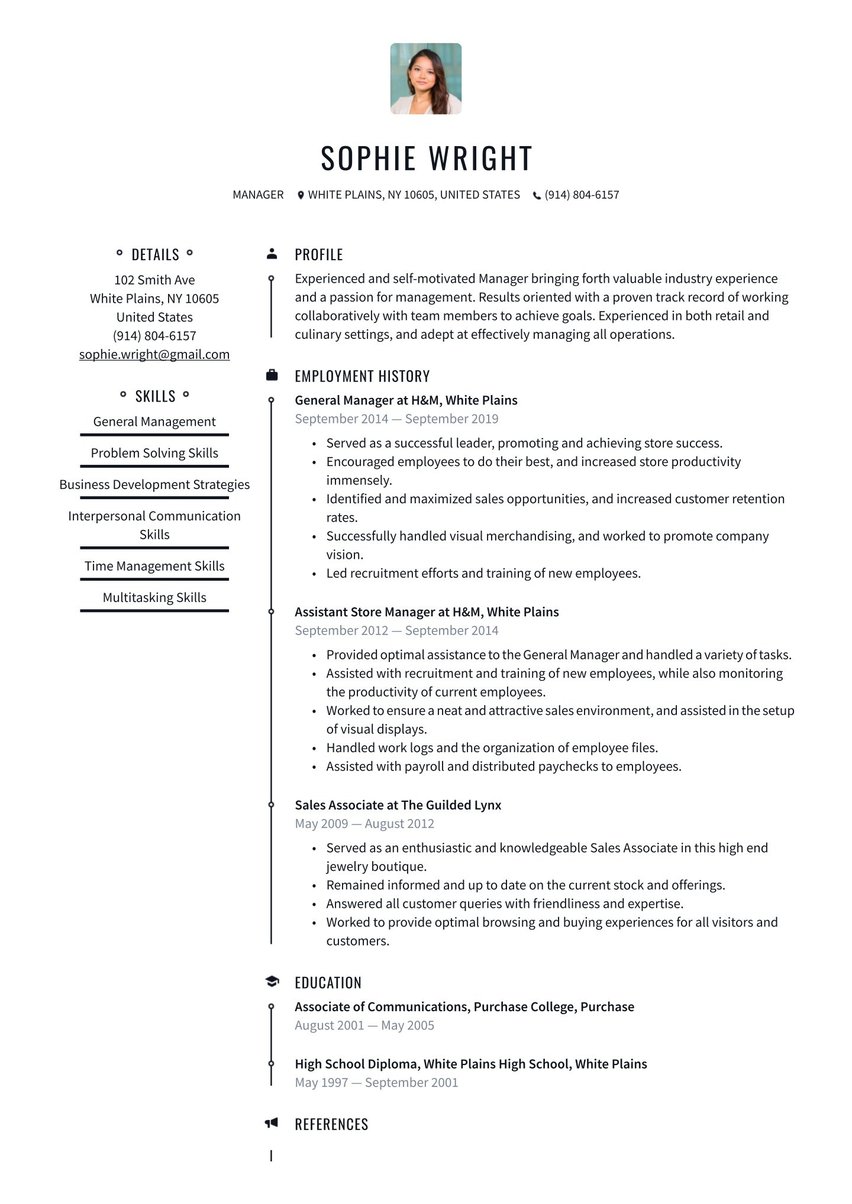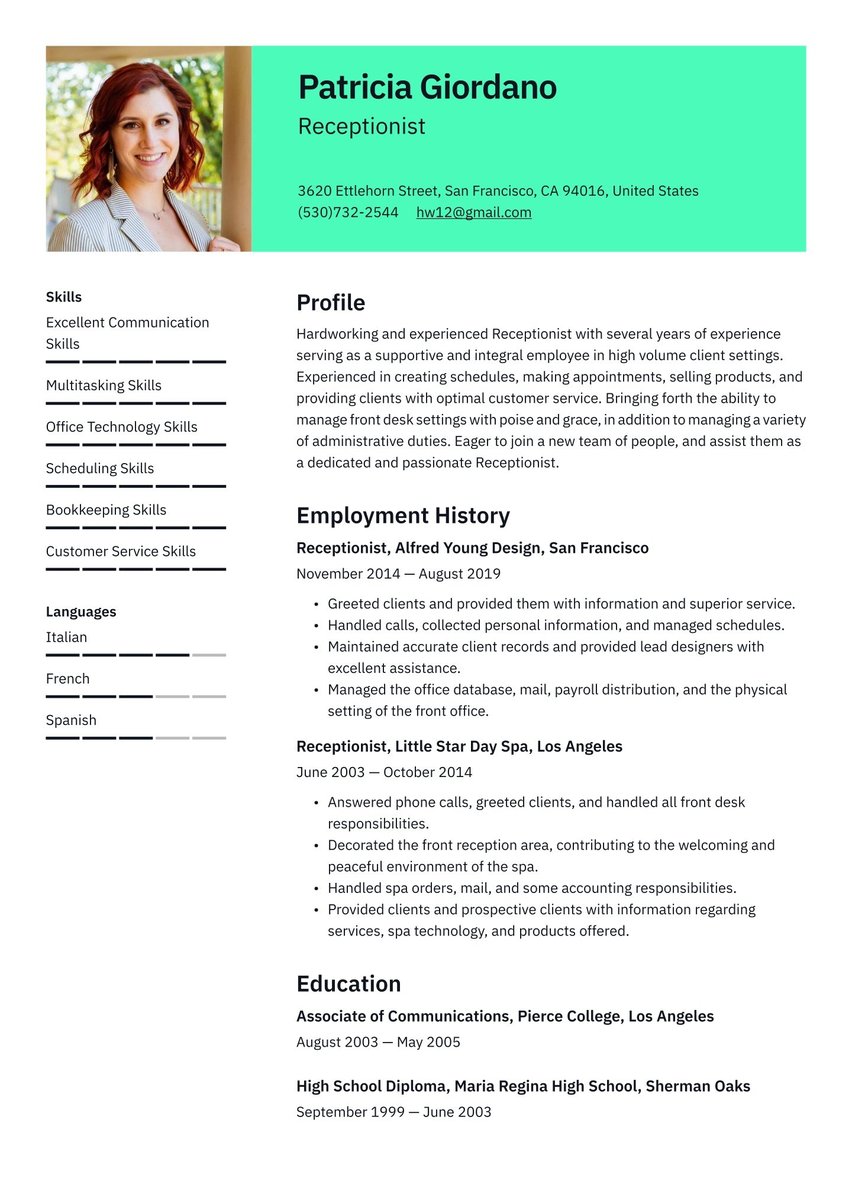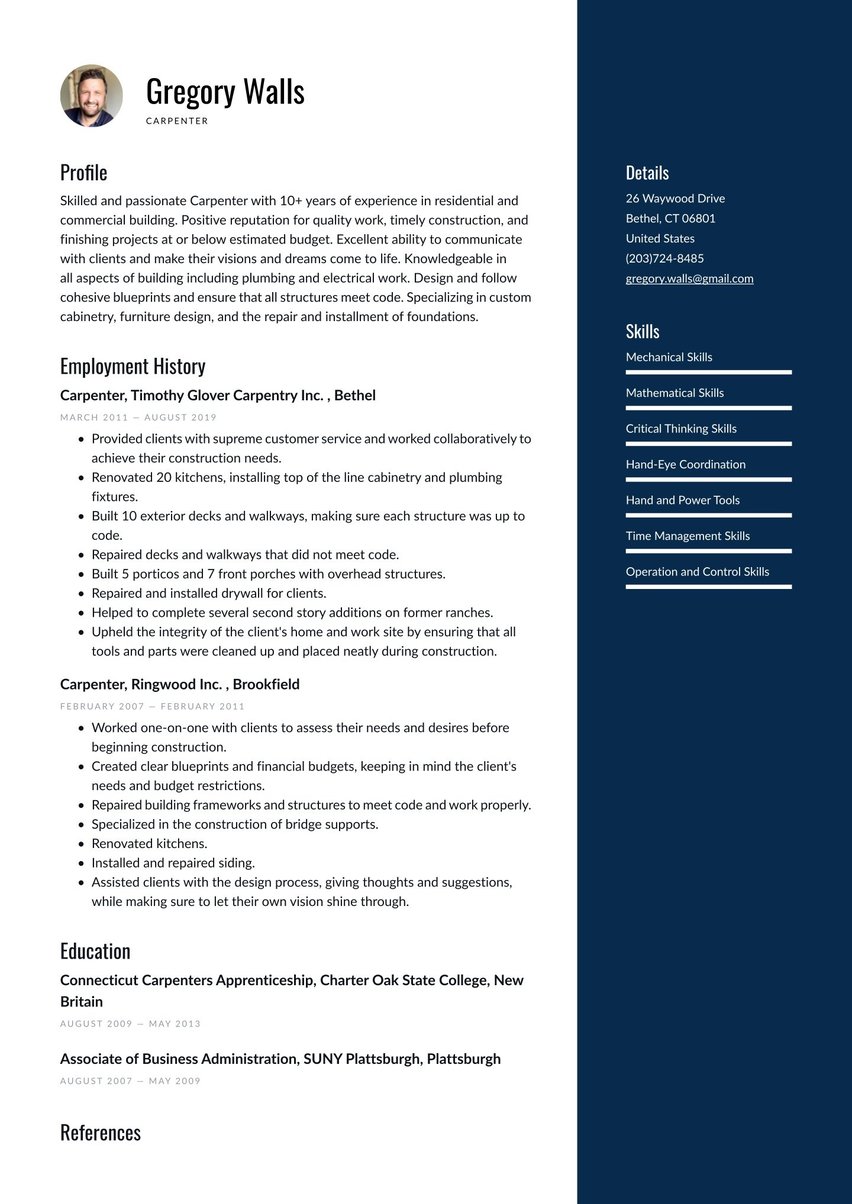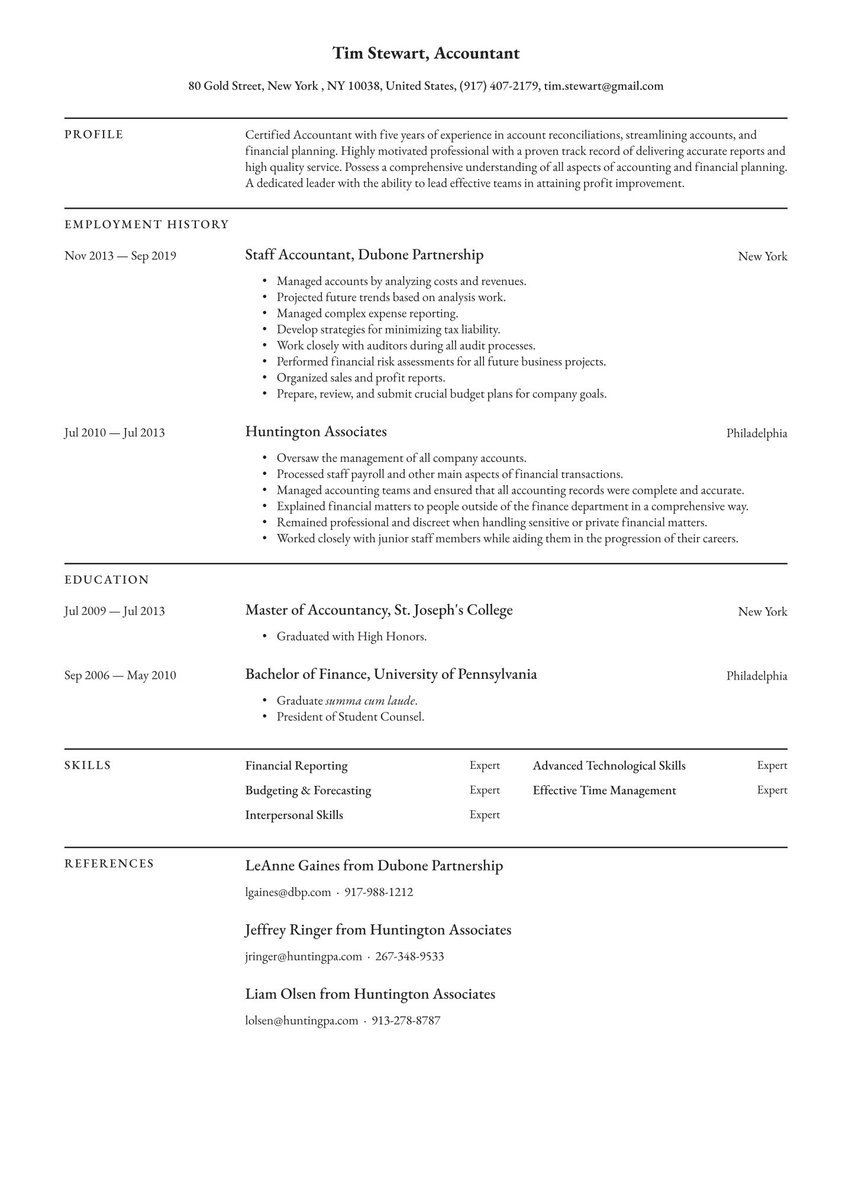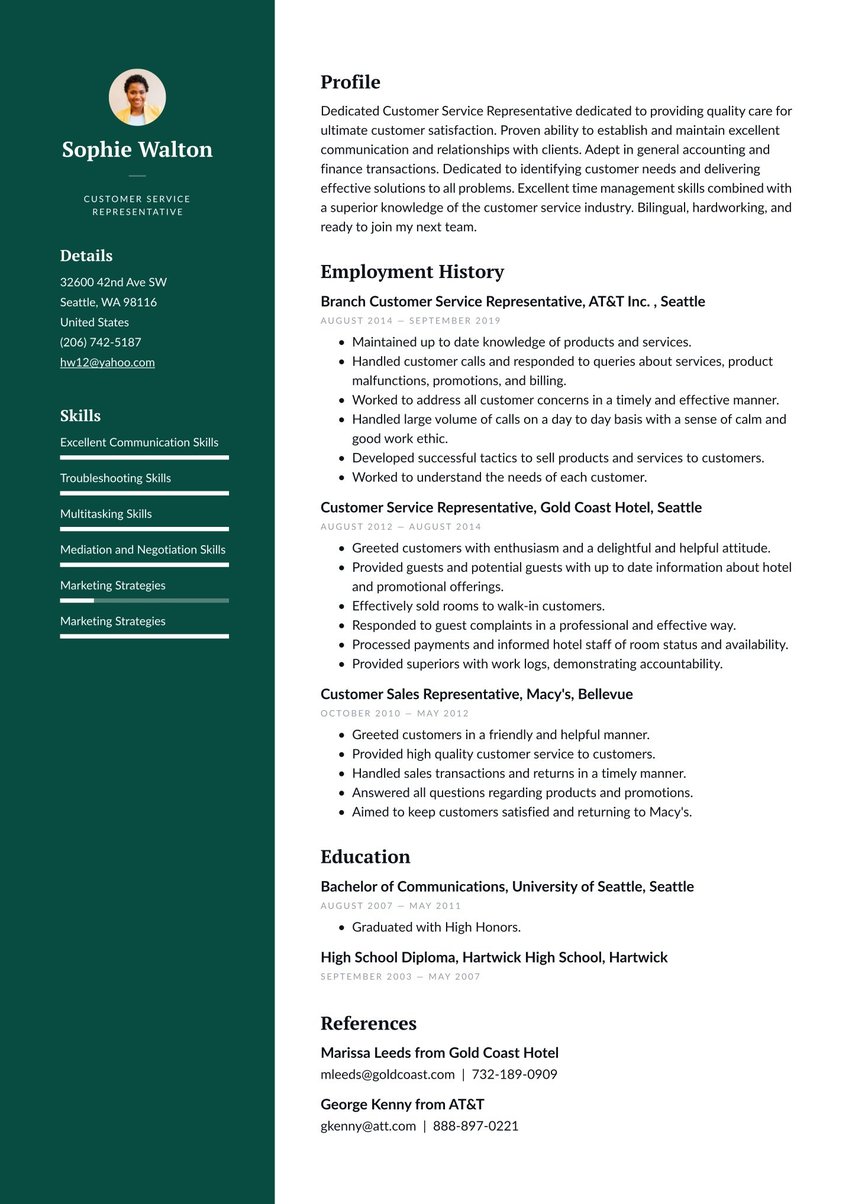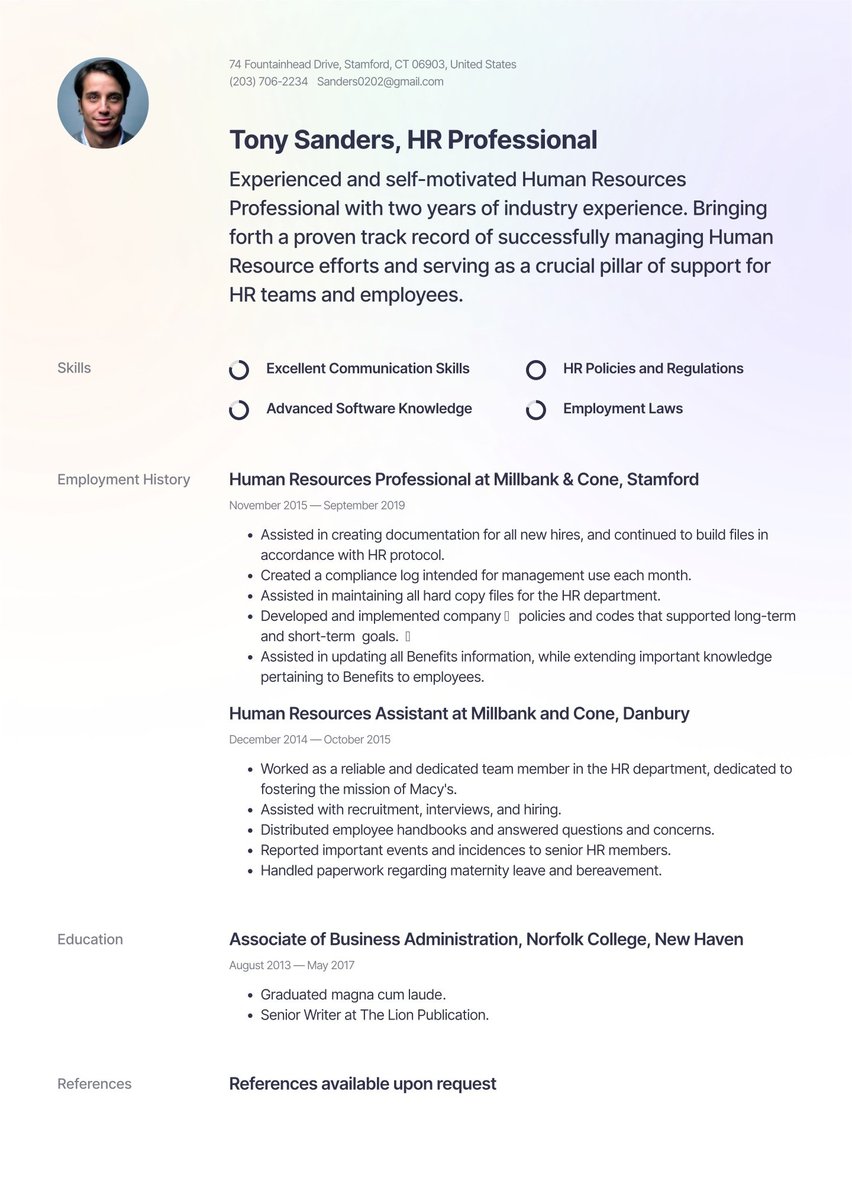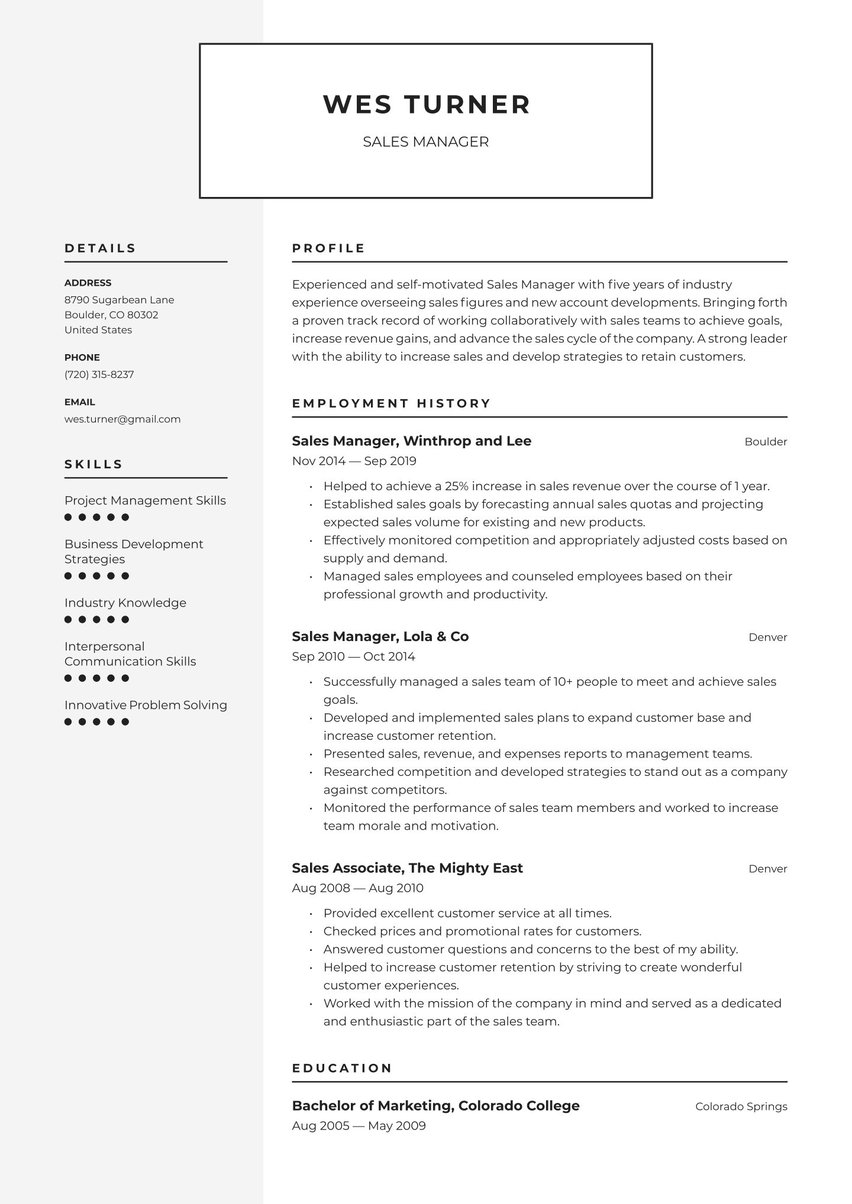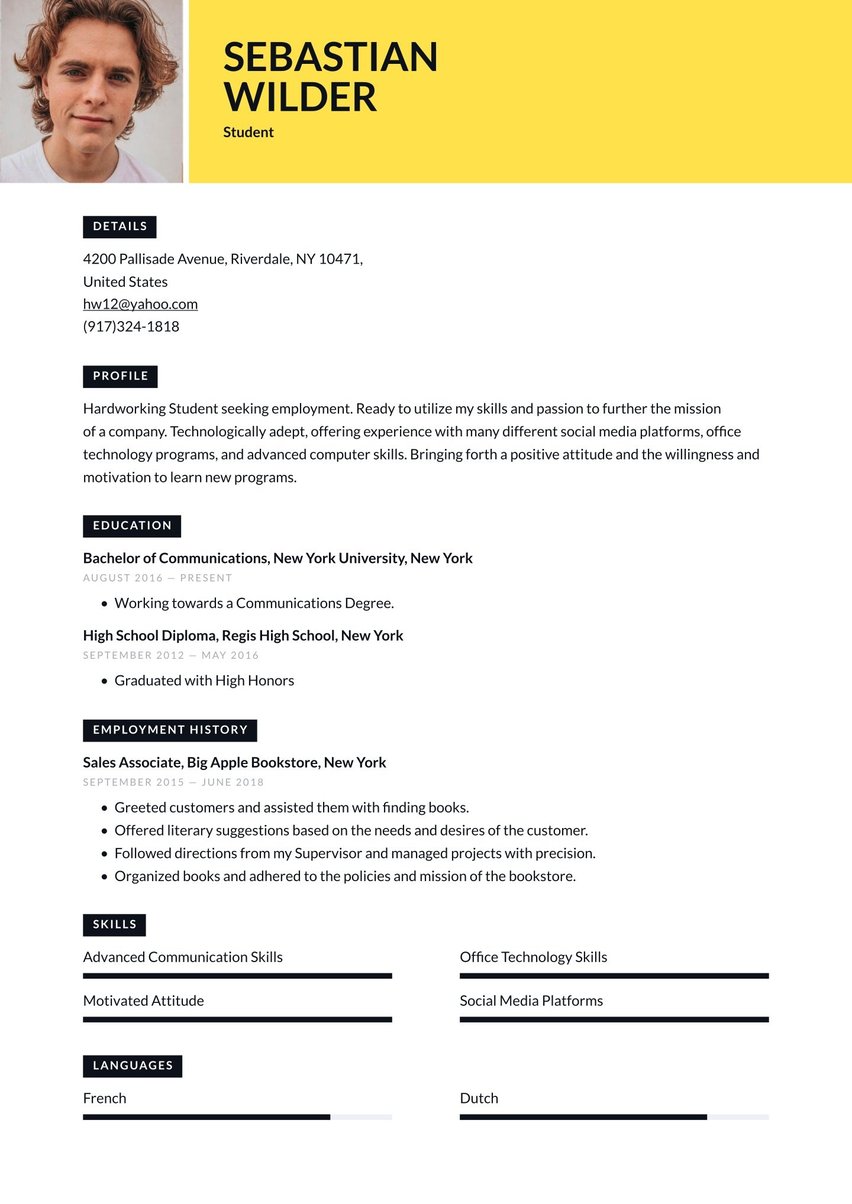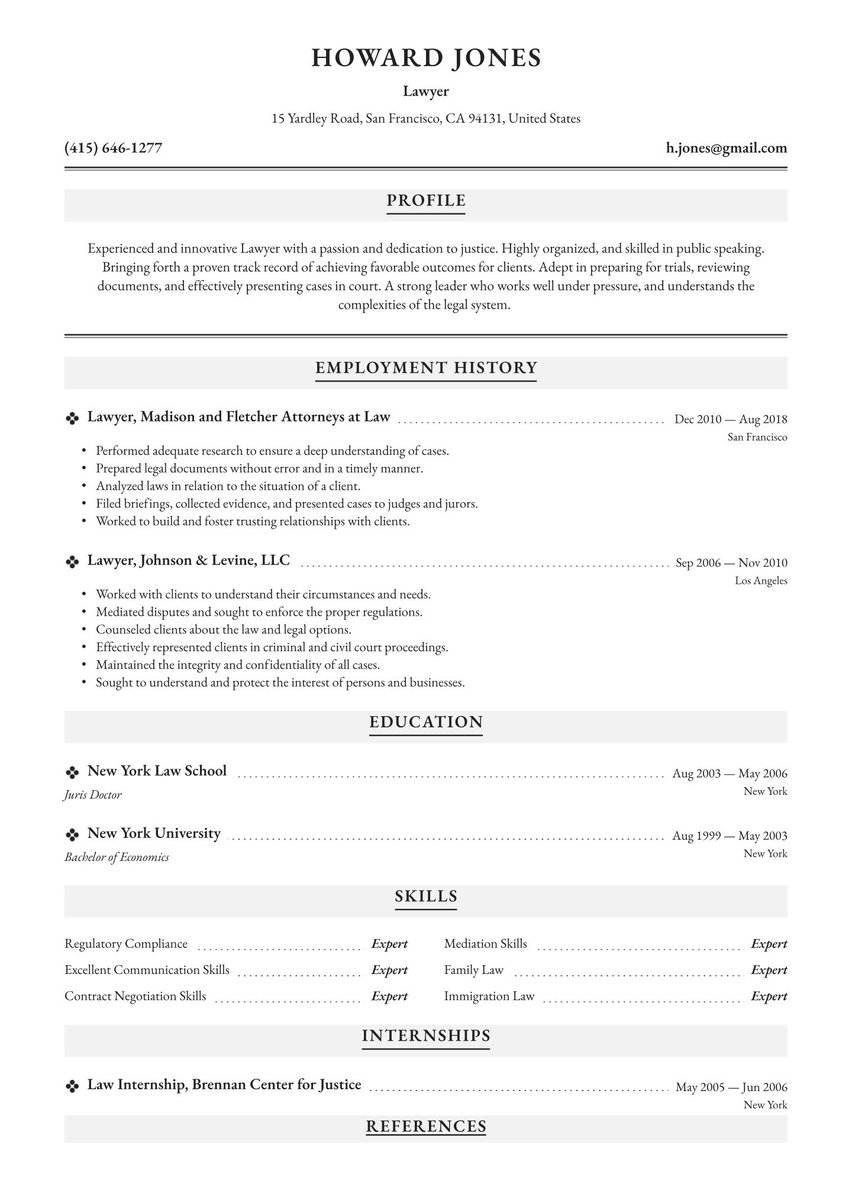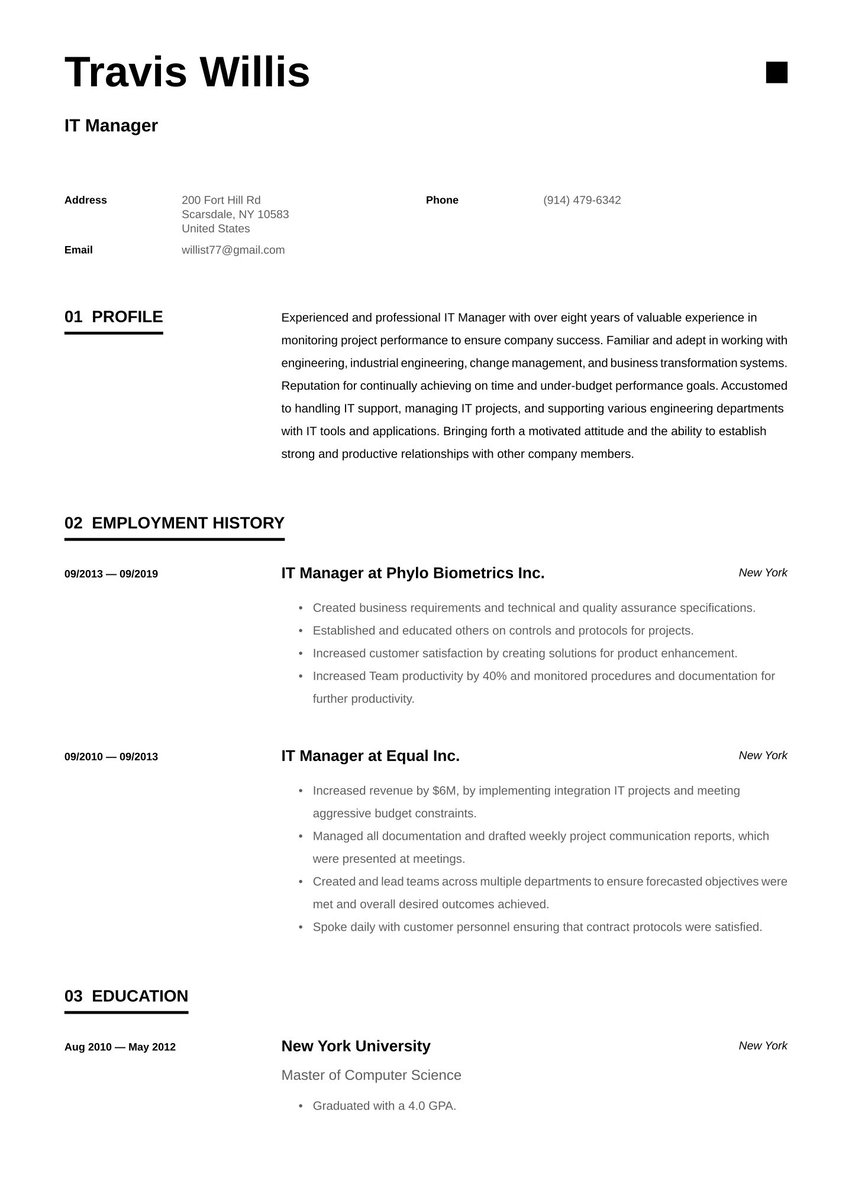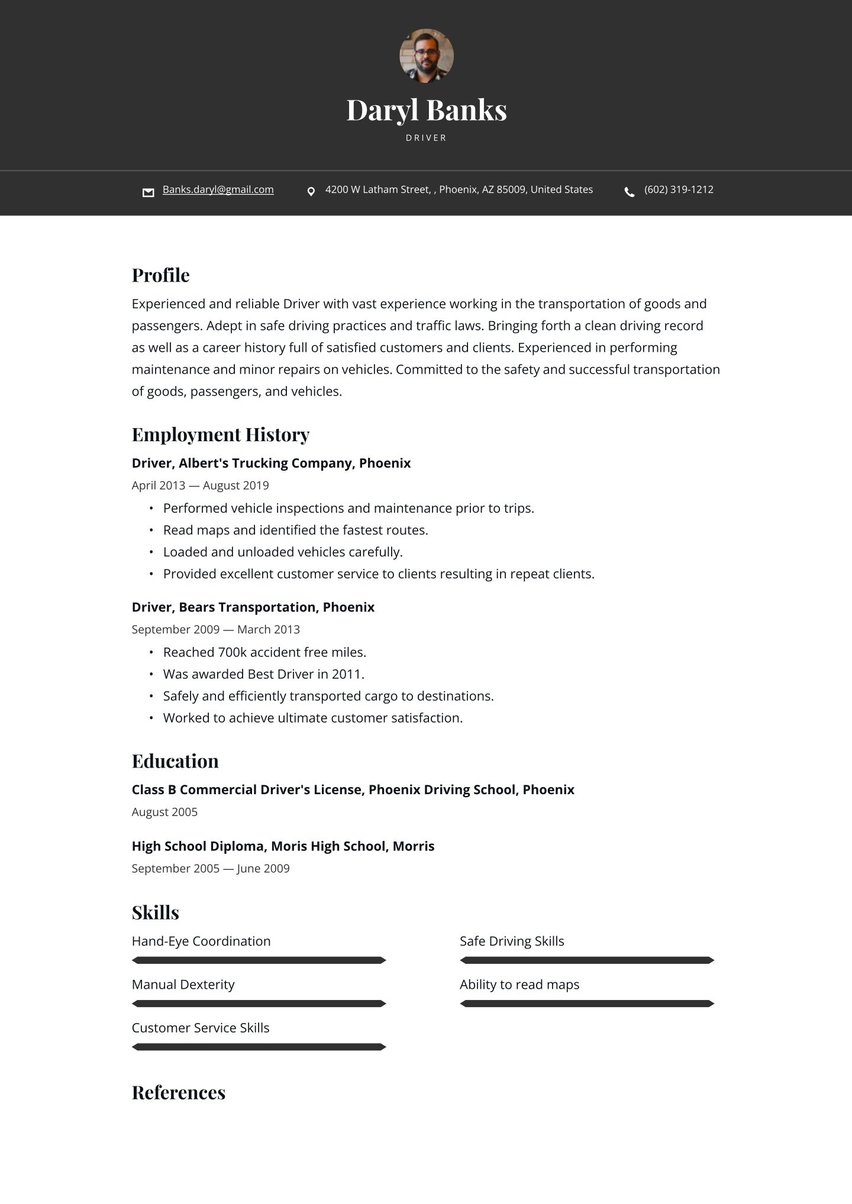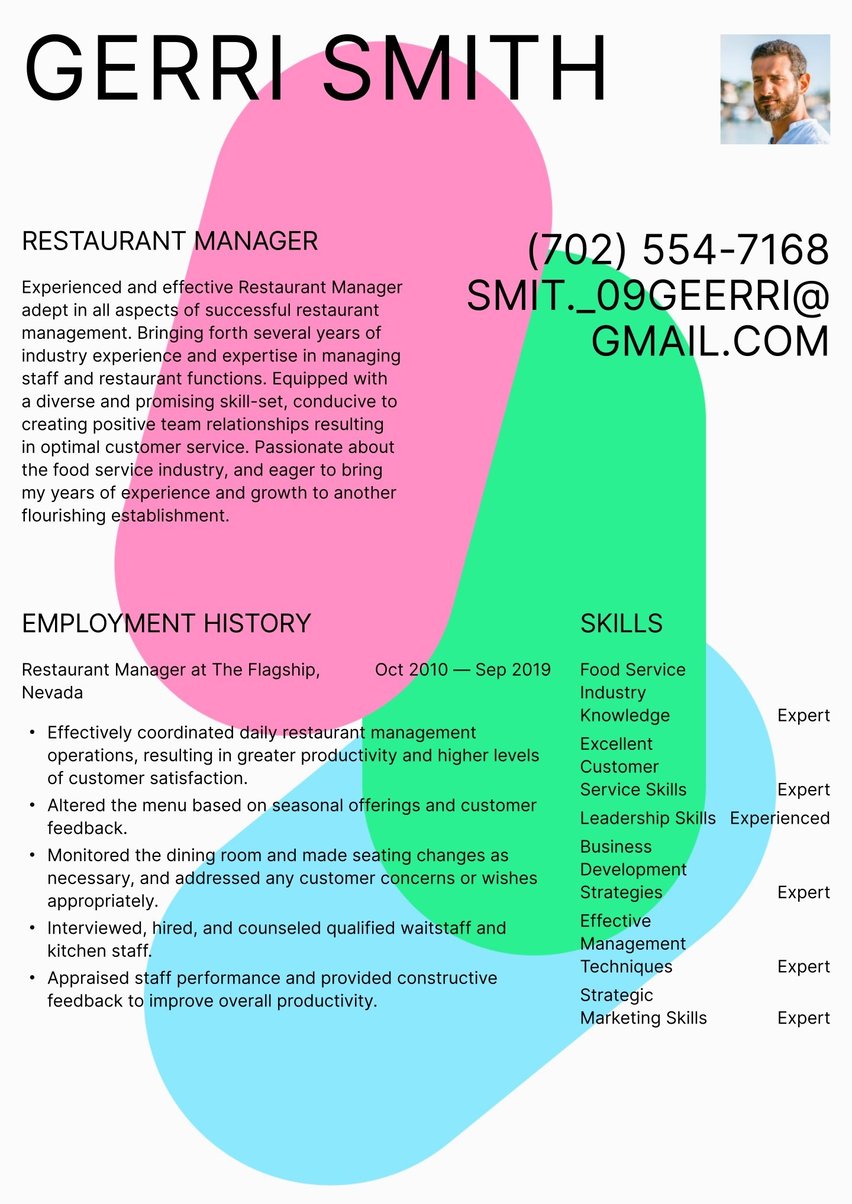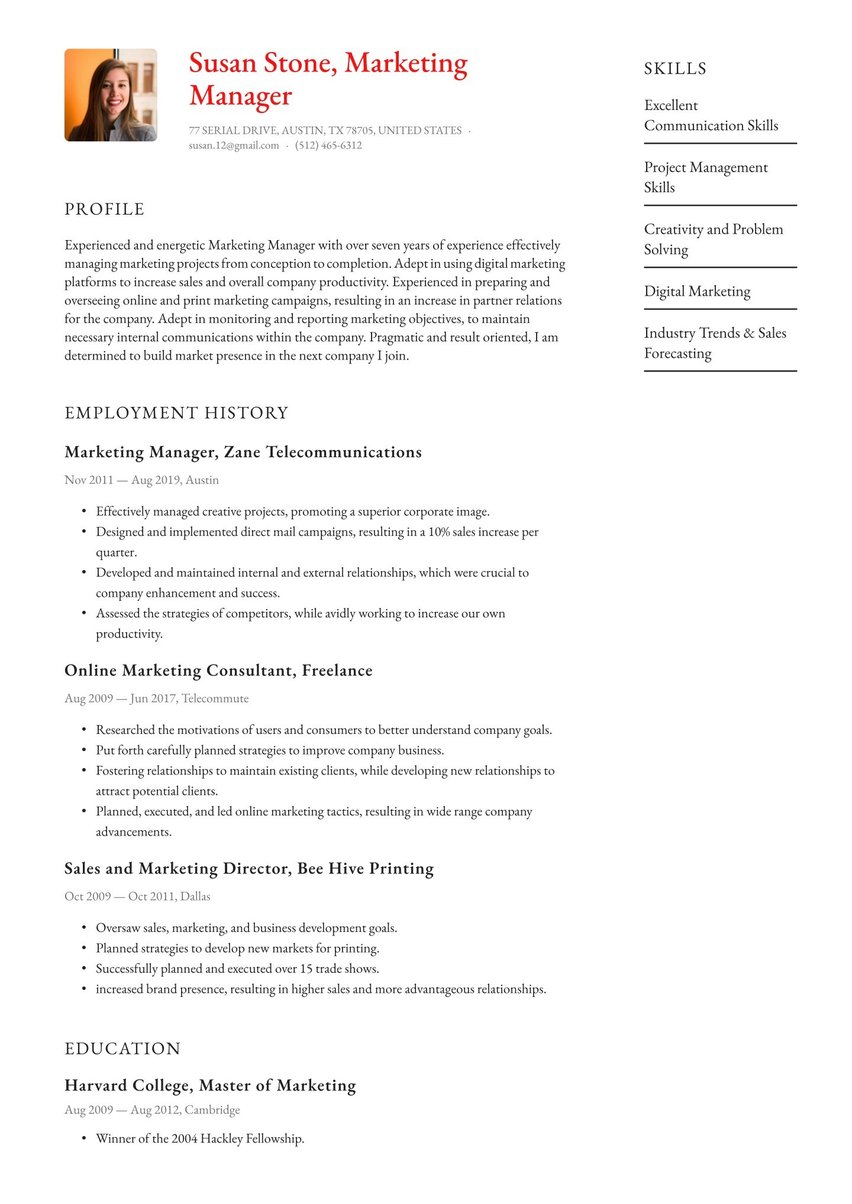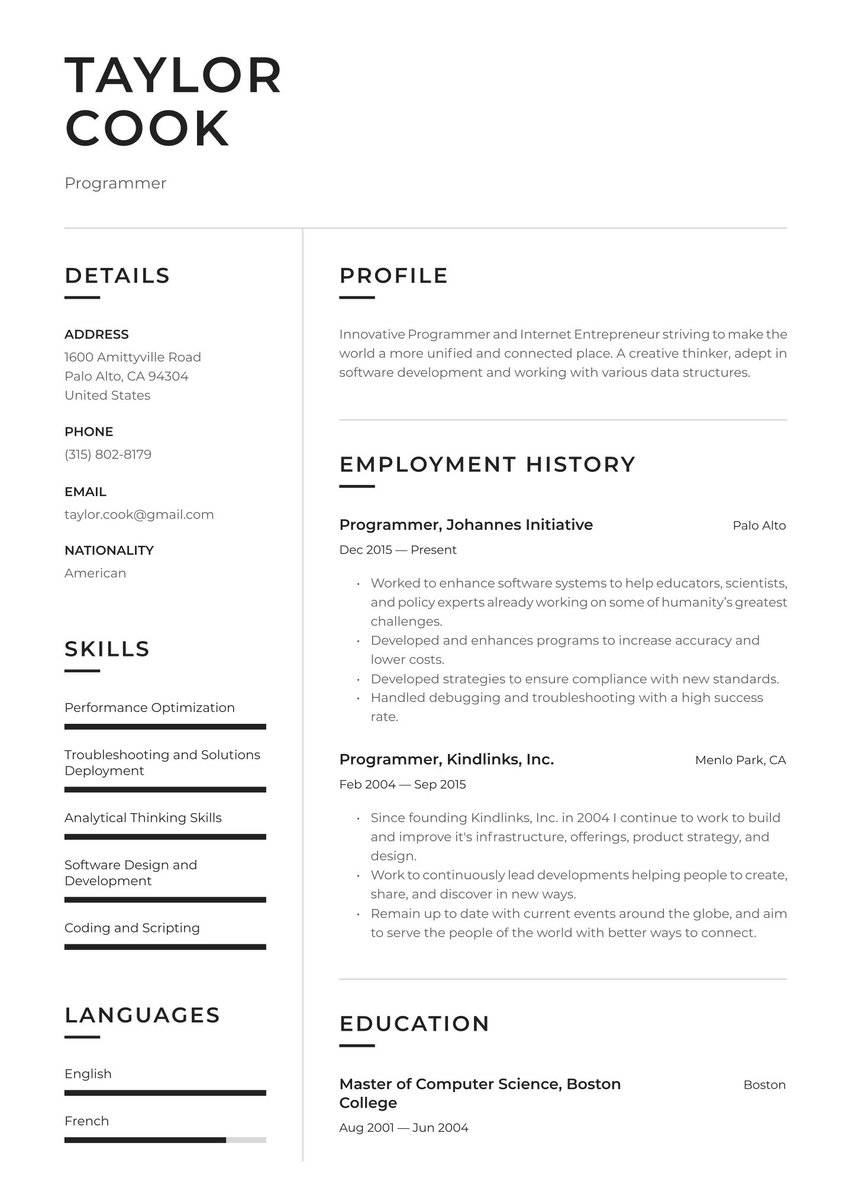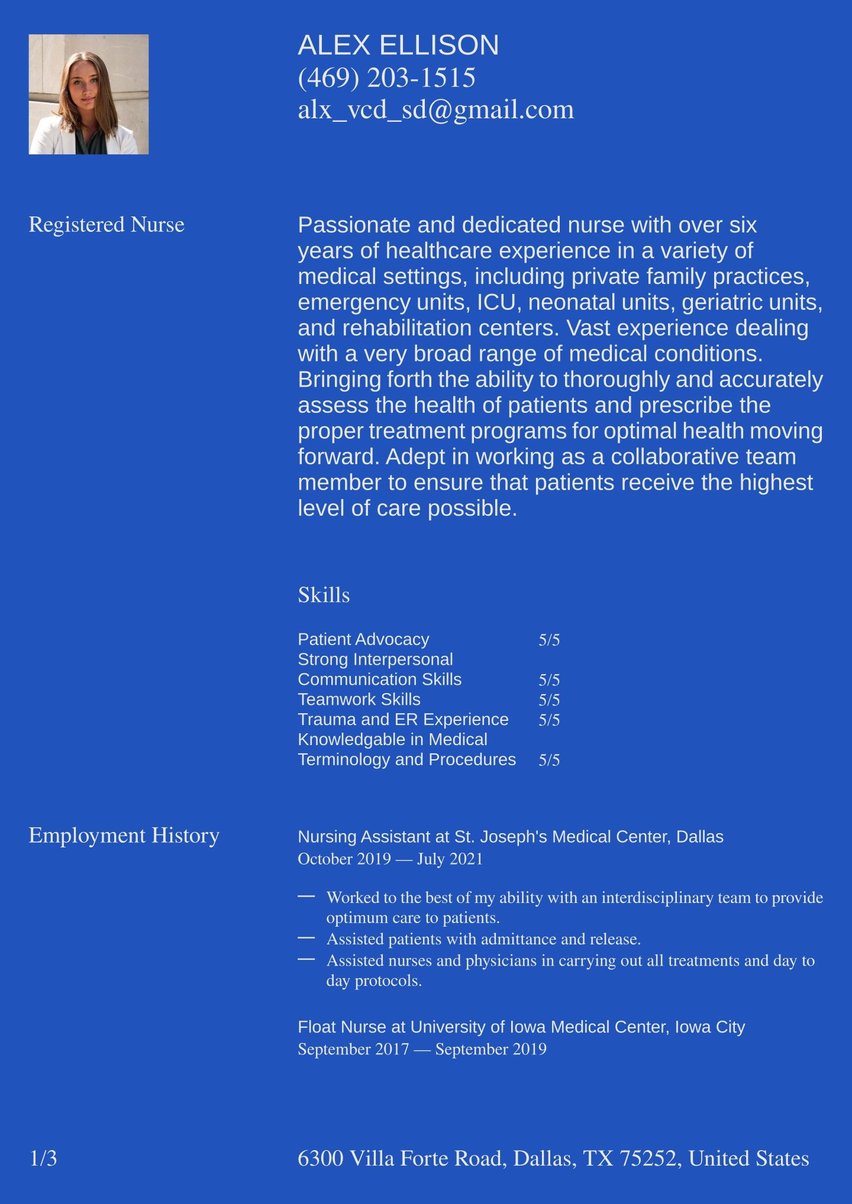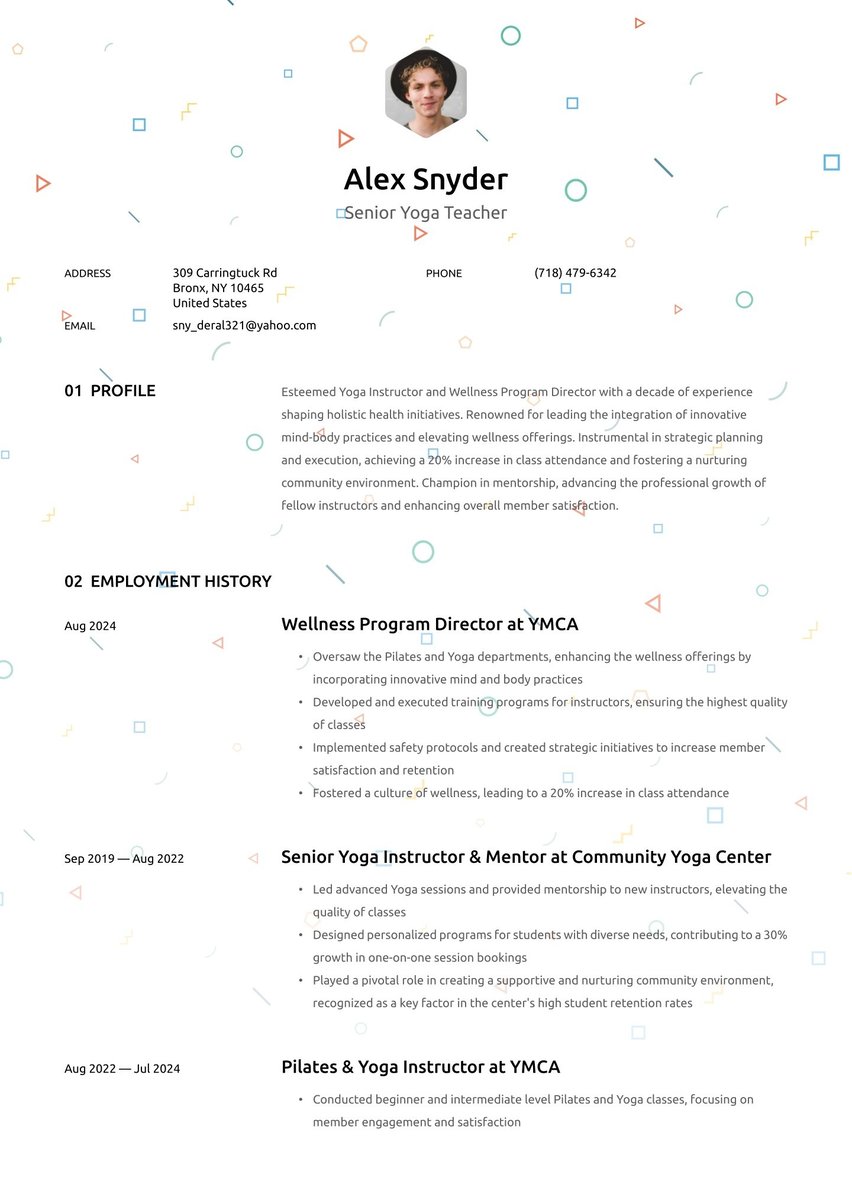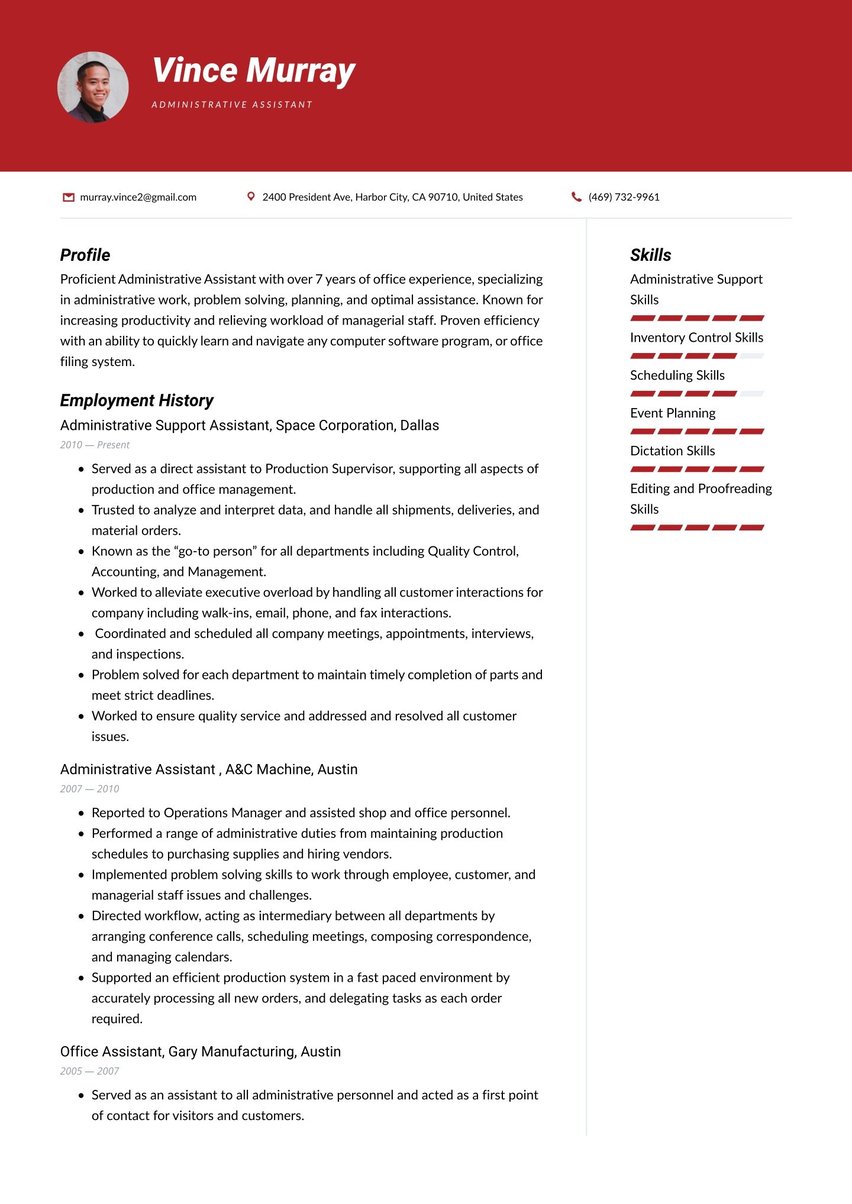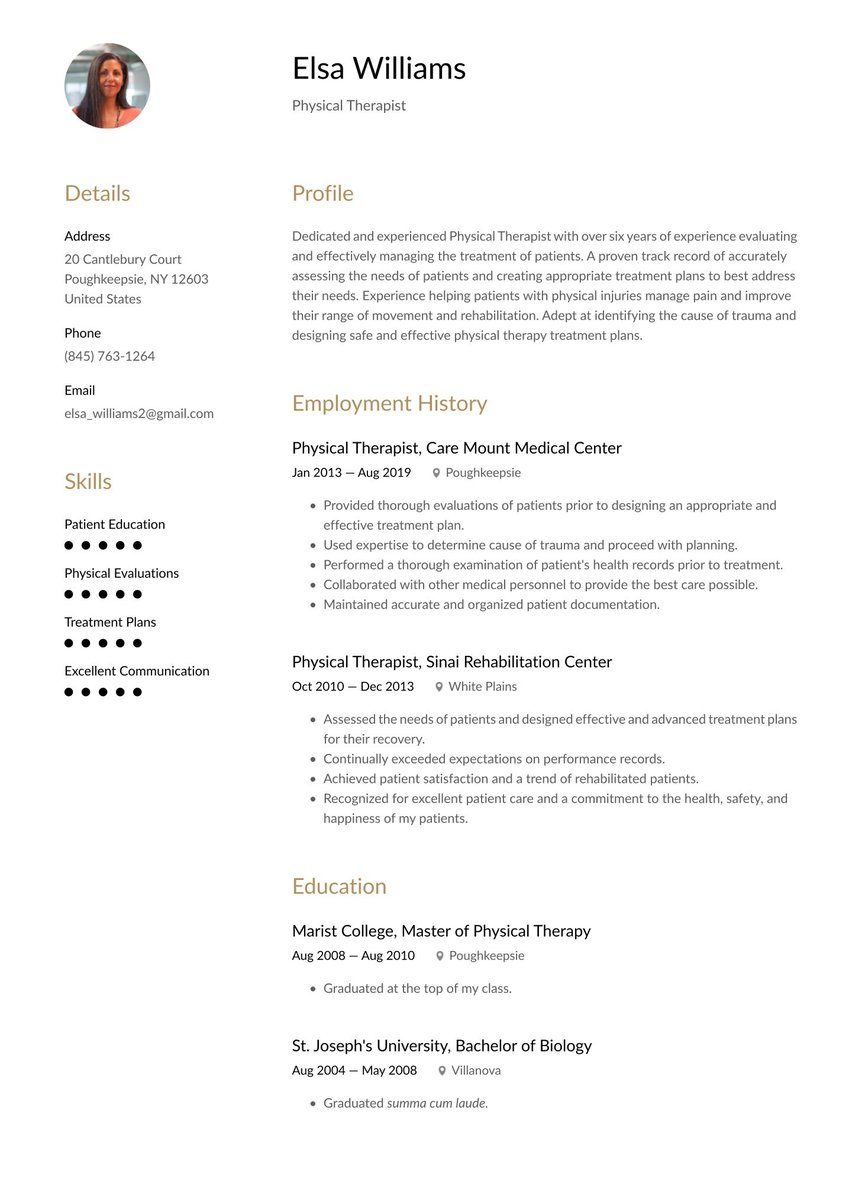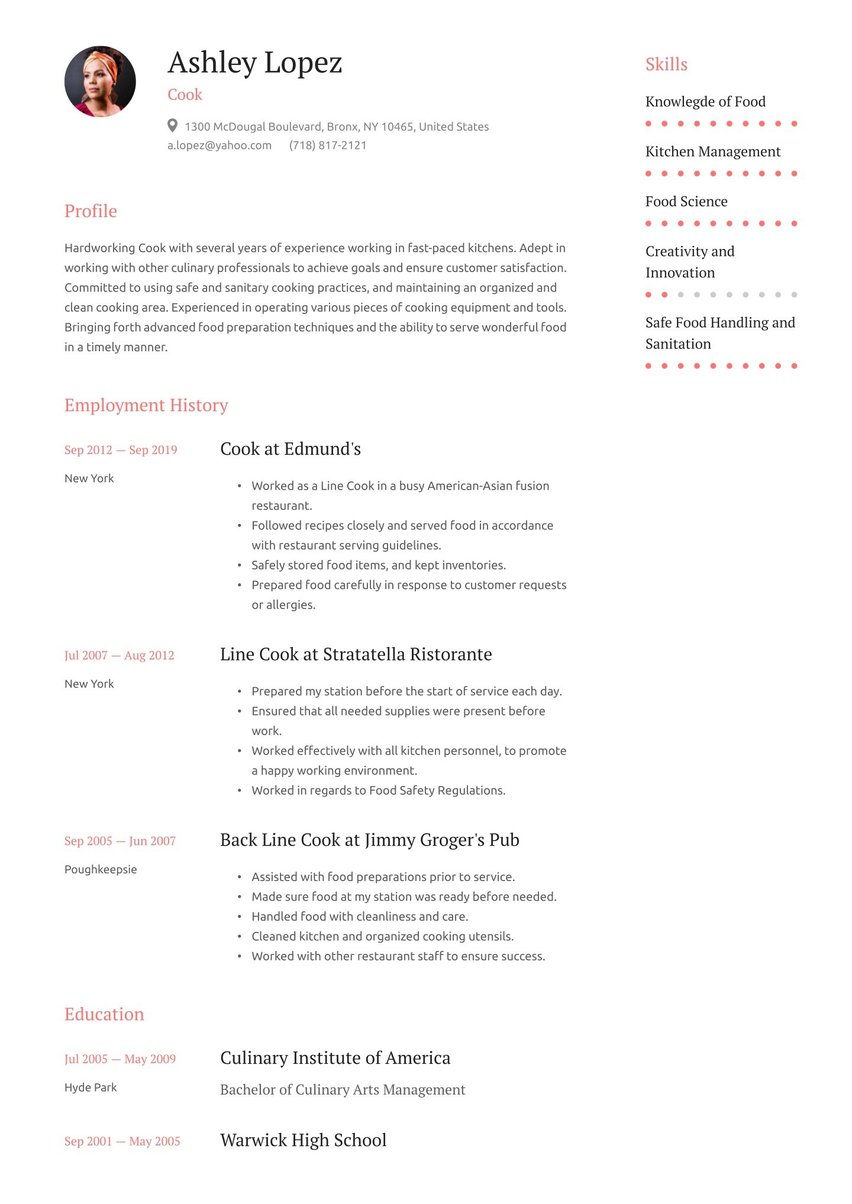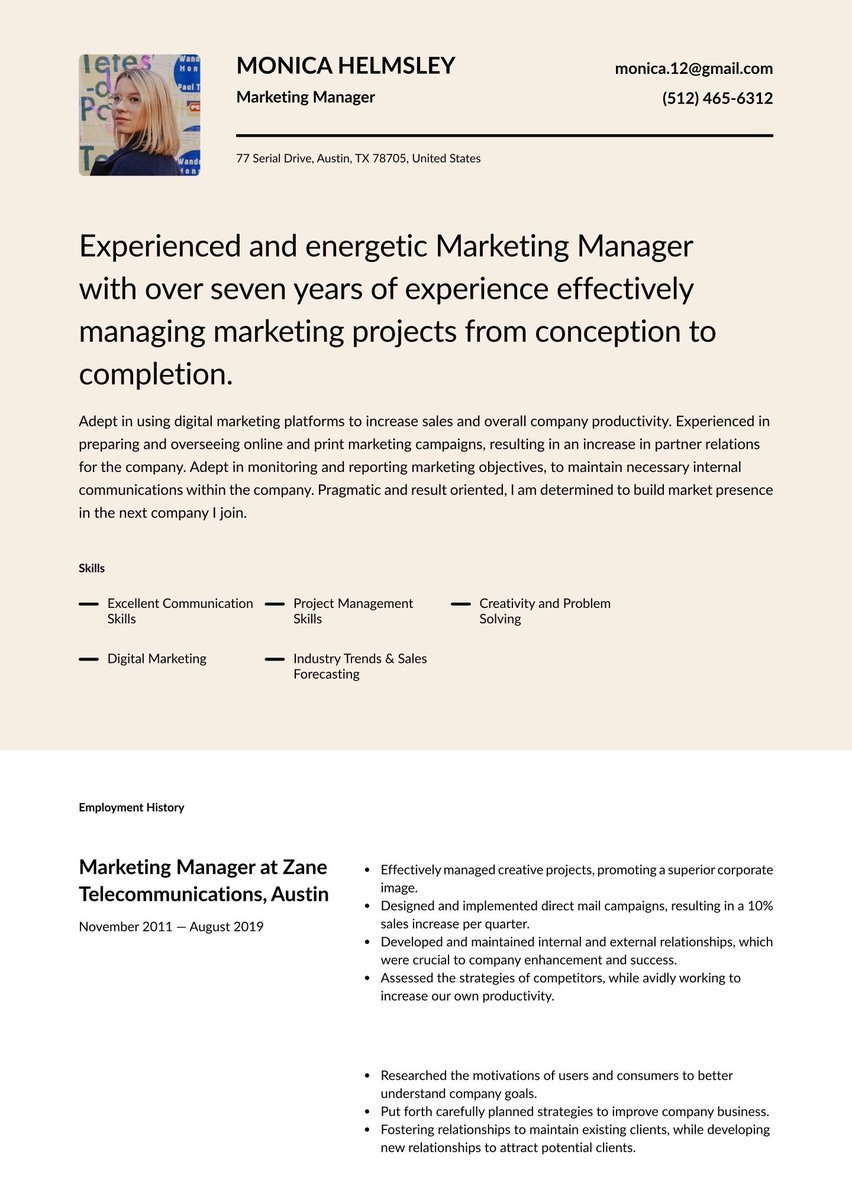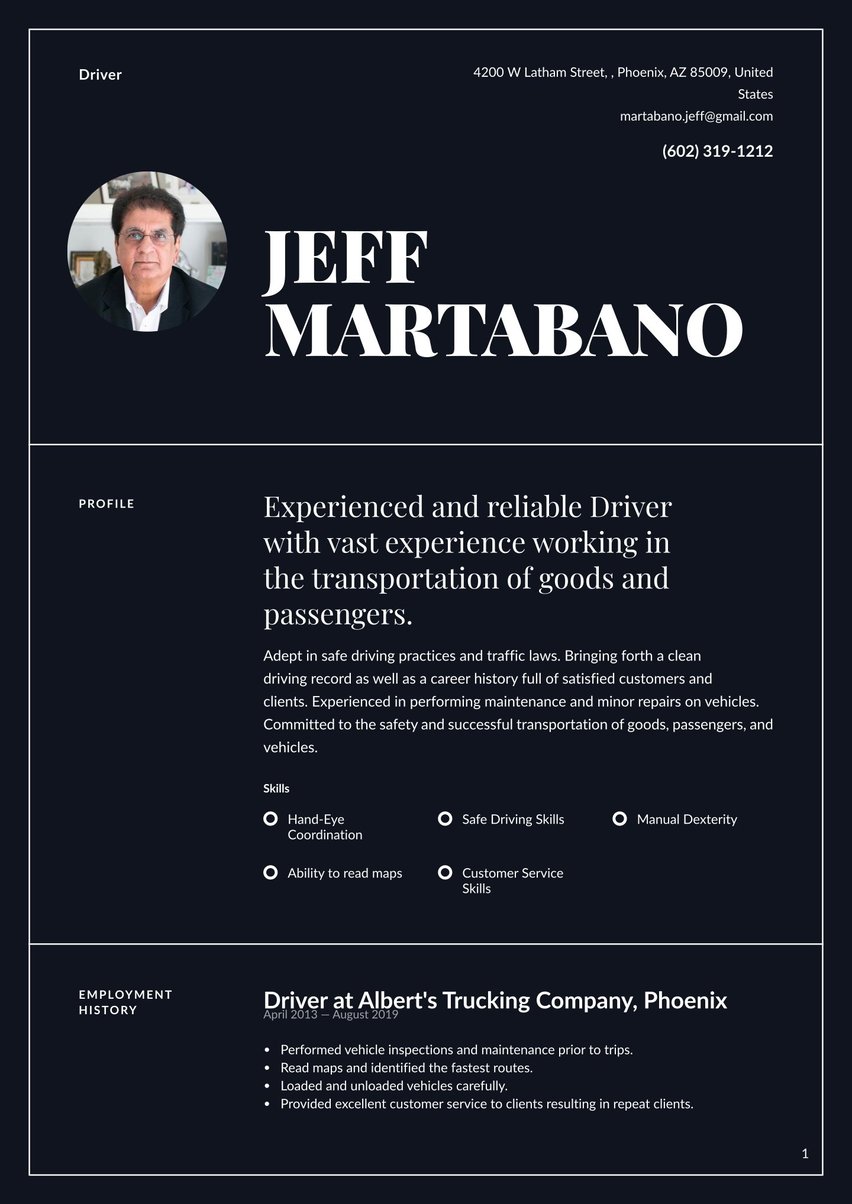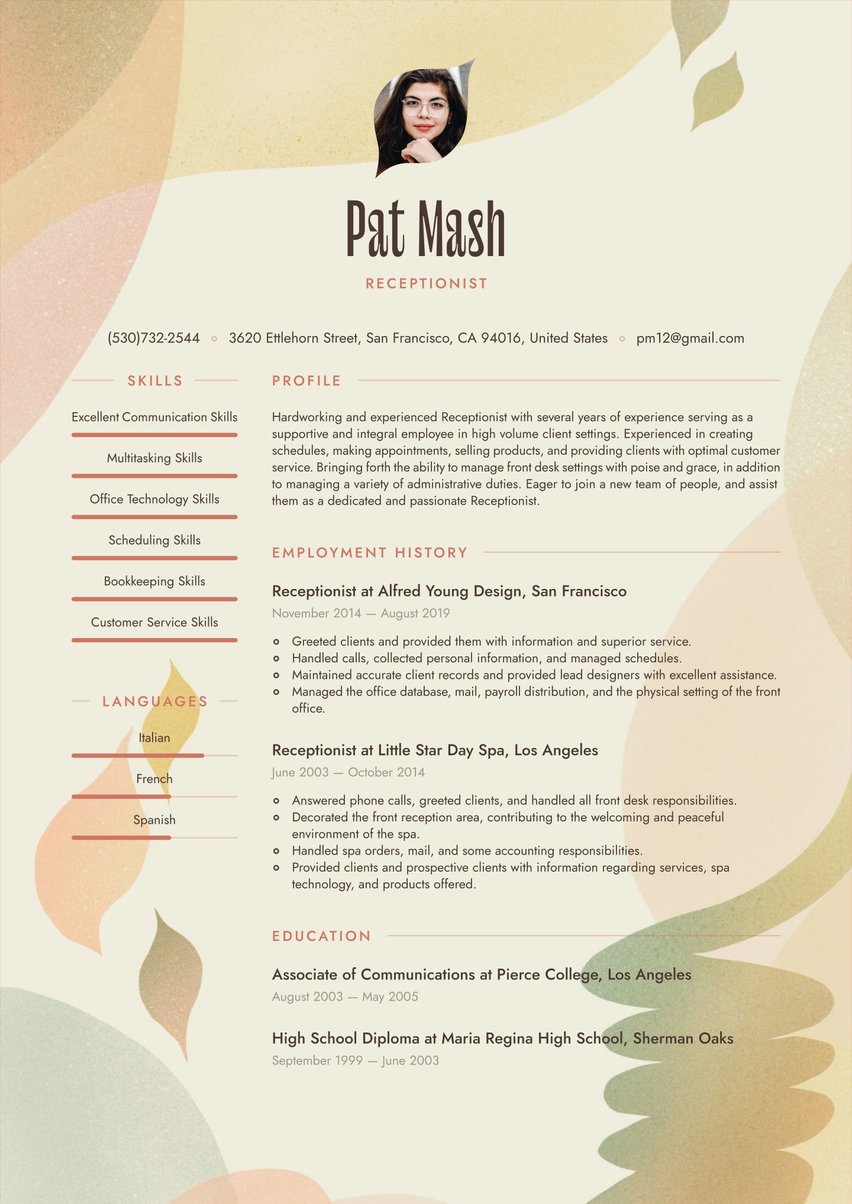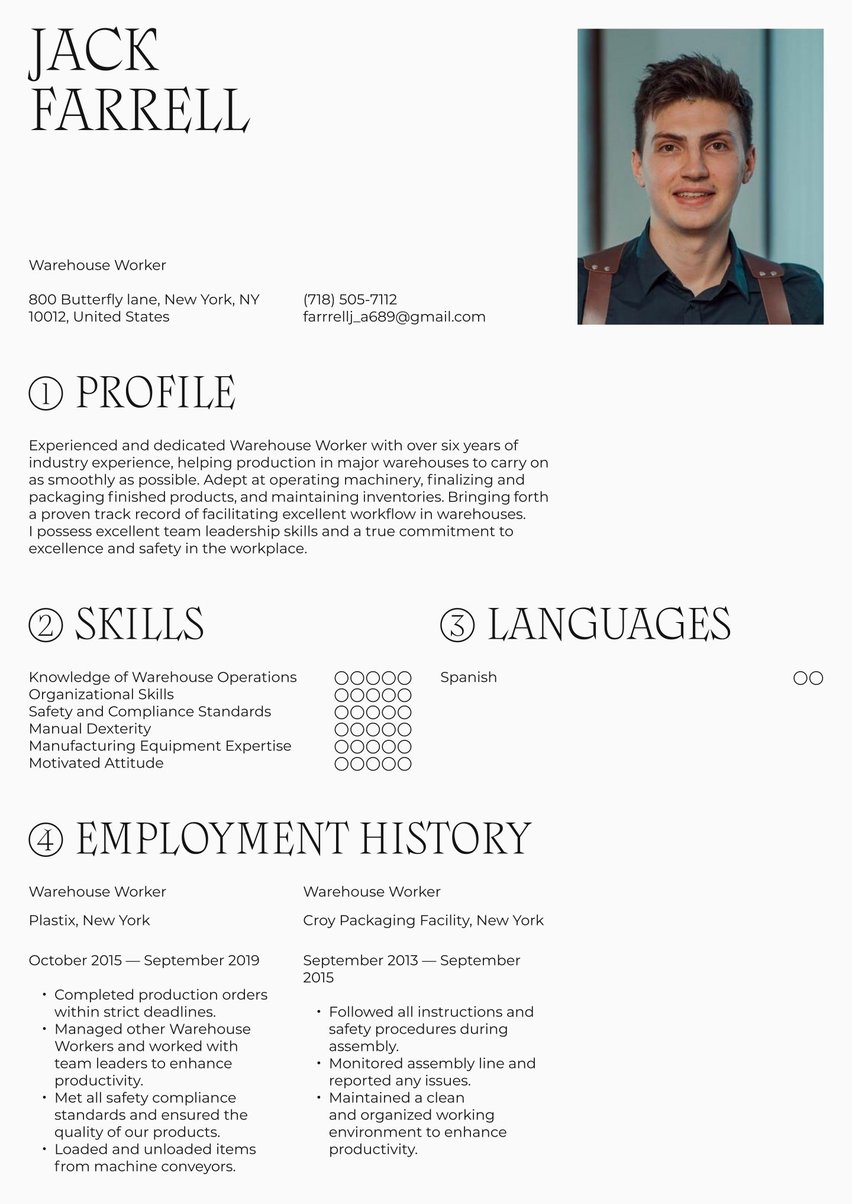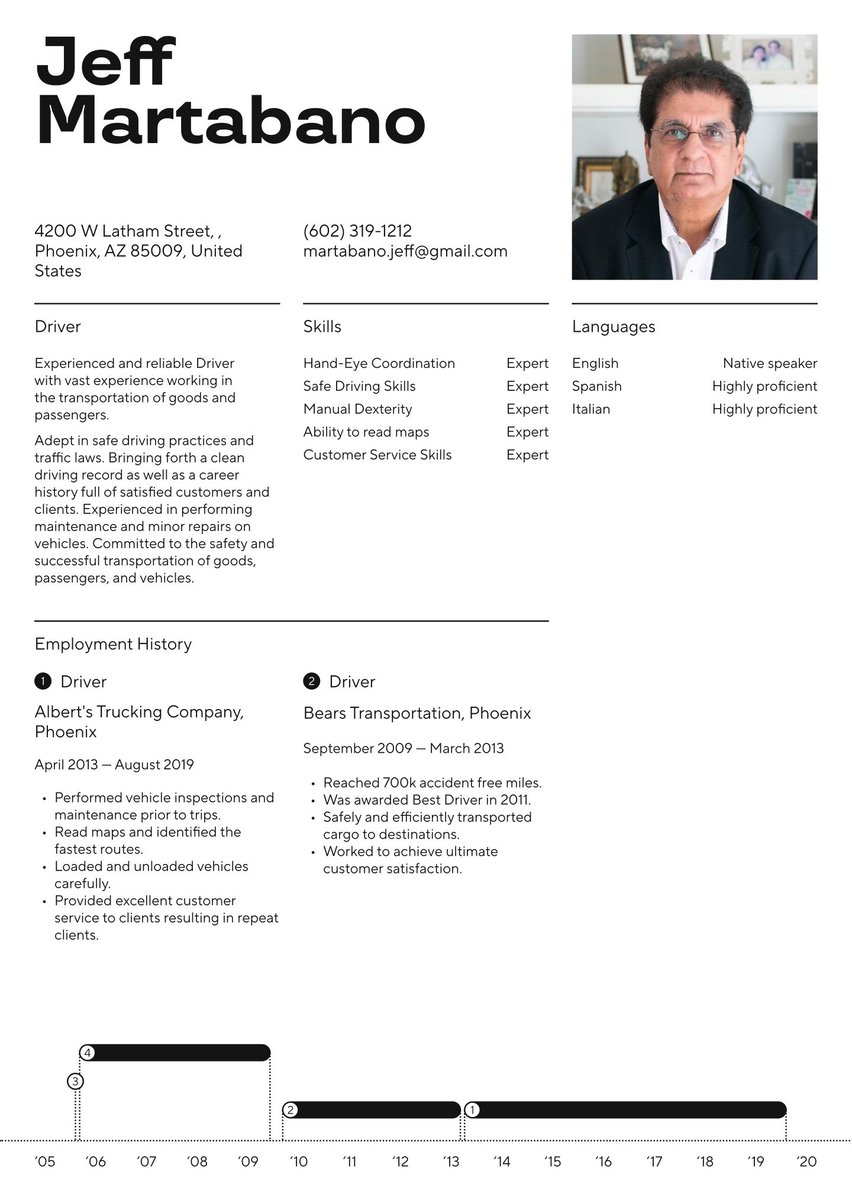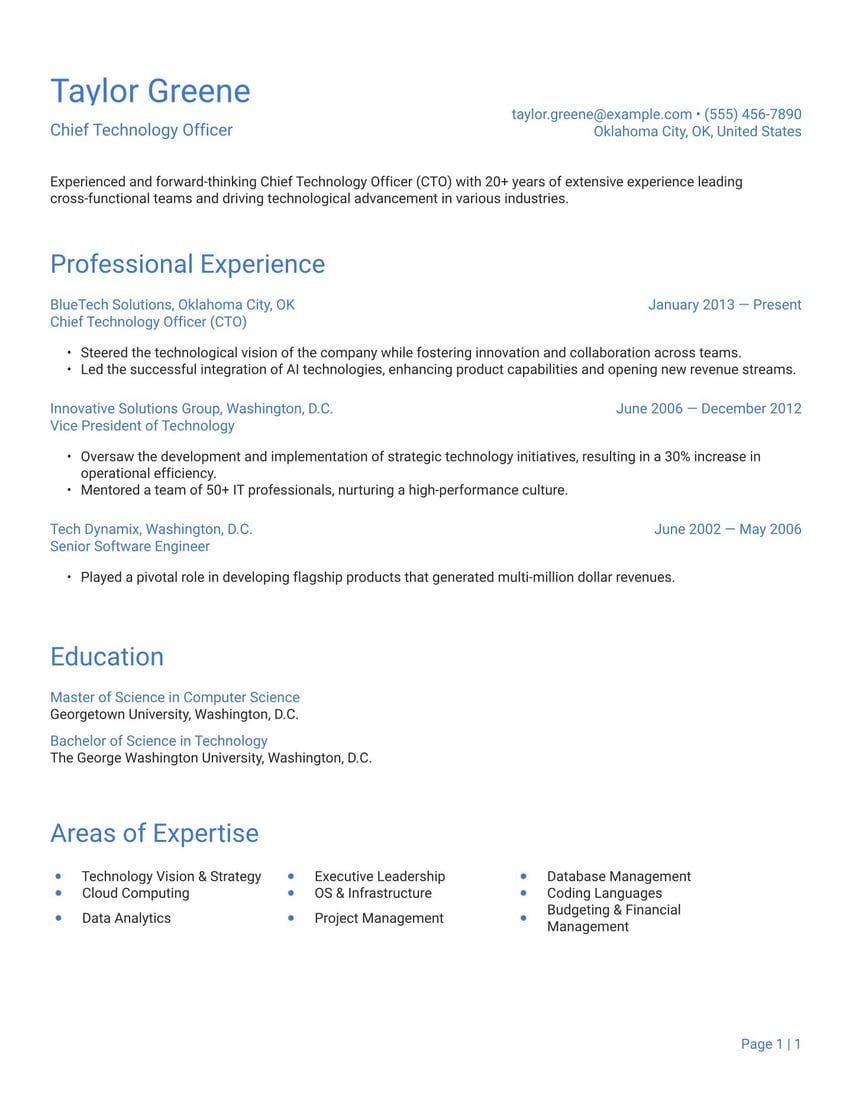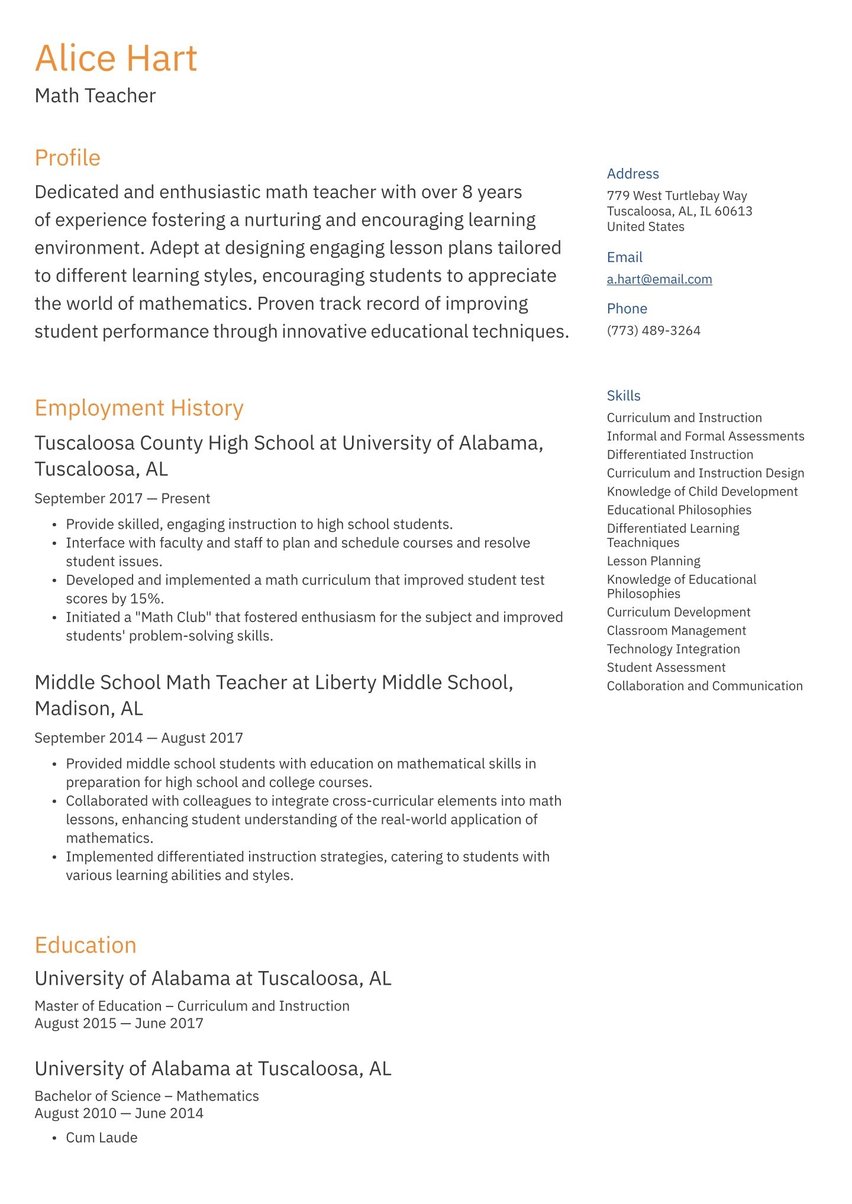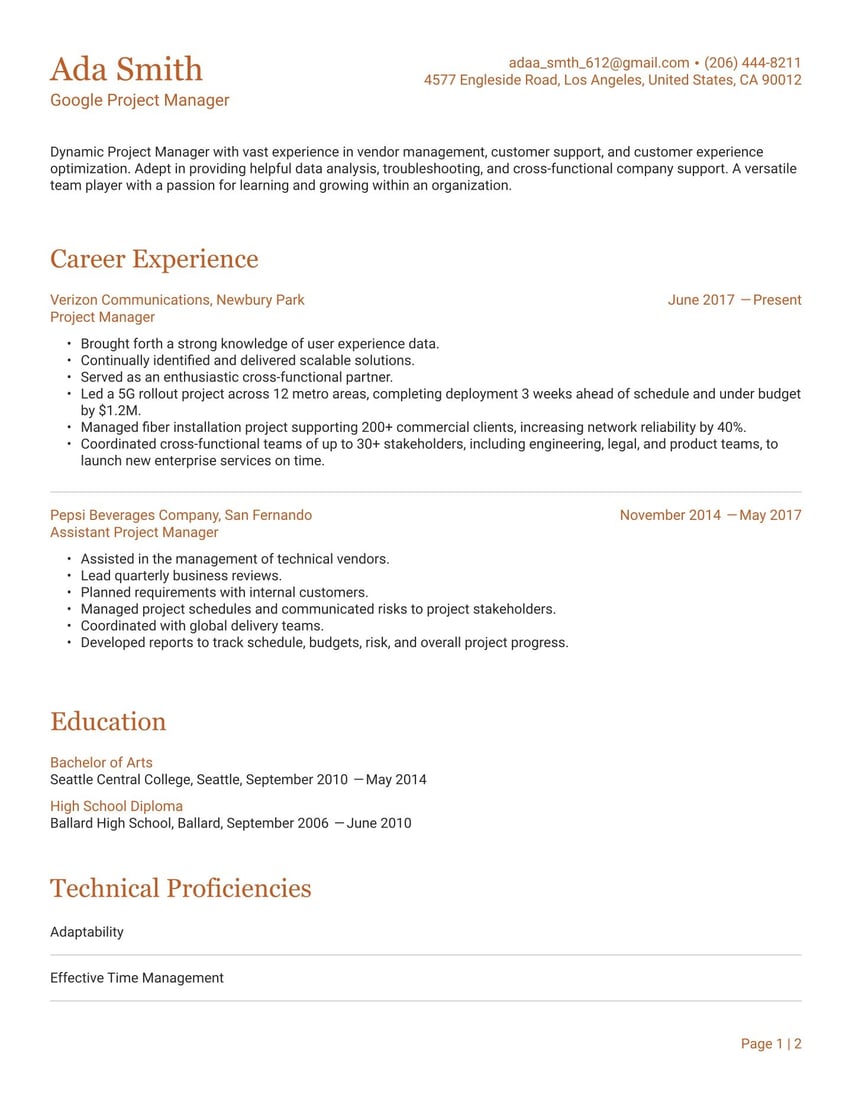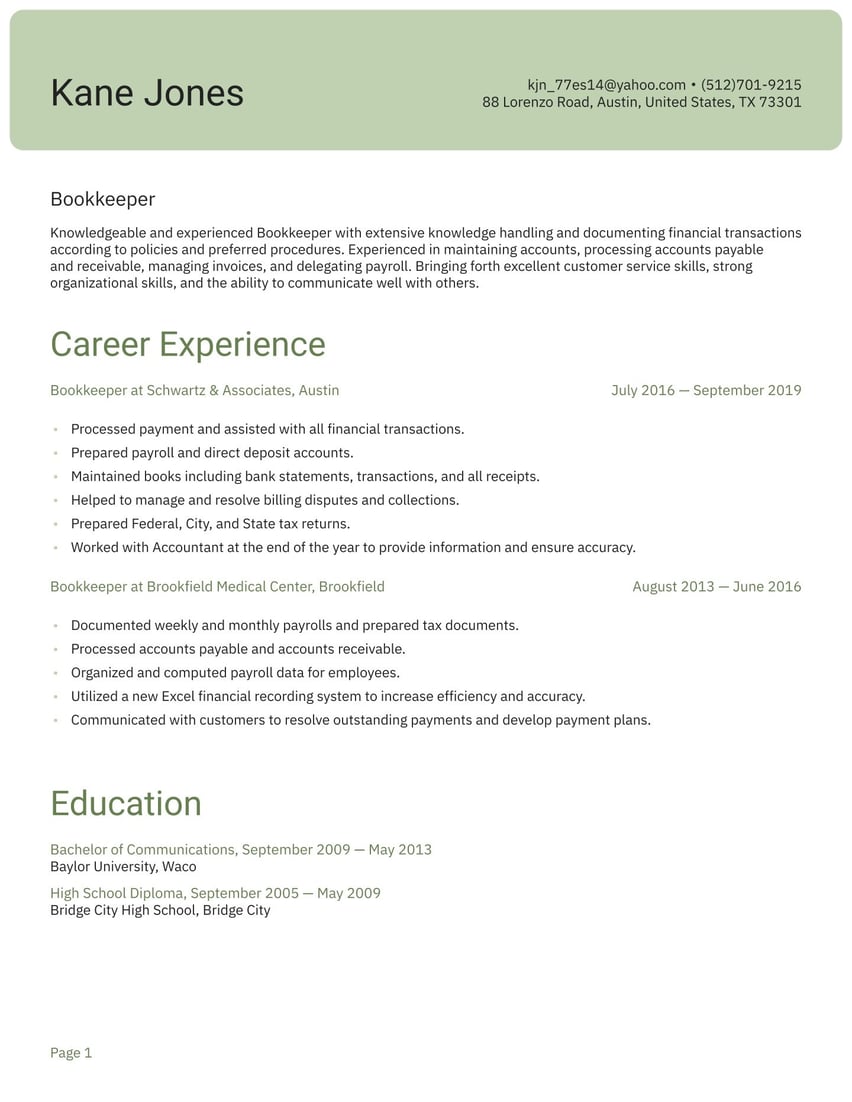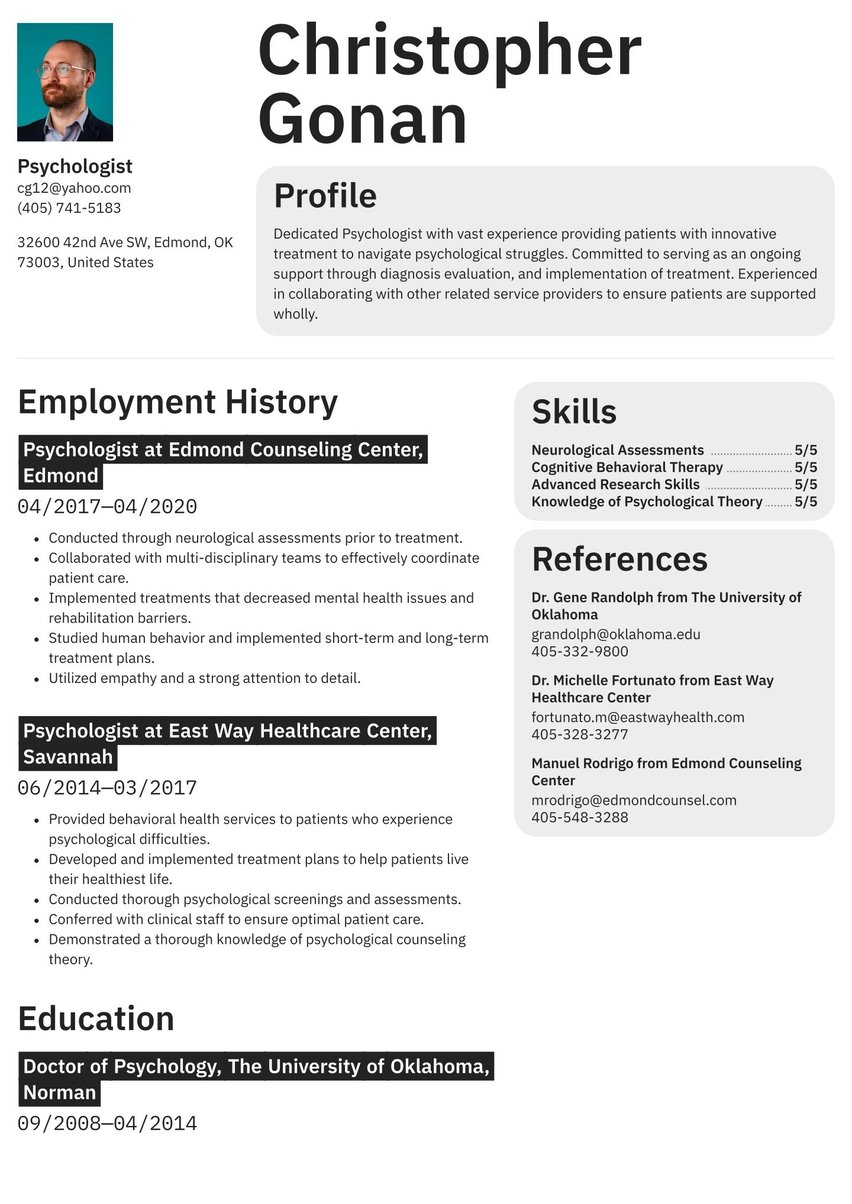Experienced and dedicated Warehouse Worker with over six years of experience in helping production in major warehouses to carry on as smoothly as possible. Adept at operating machinery, finalizing, and packaging finished products, and maintaining inventories. Proven track record of facilitating excellent workflow in warehouses. Excellent team leadership skills and a true commitment to excellence and safety in the workplace.
10/2015 - 09/2019, Warehouse Worker, Plastix, New York
- Complete production orders within strict deadlines.
- Manage other Warehouse Workers and work with team leaders to enhance productivity.
- Meet all safety compliance standards and ensure the quality of our products.
- Load and unload items from machine conveyors.
- Mentor new assembly workers on protocol and safety guidelines.
- Perform minor equipment maintenance when necessary.
- Reported any machine malfunctions or safety issues to supervisor.
09/2013 - 09/2015, Warehouse Worker, Croy Packaging Facility, New York
- Followed all instructions and safety procedures during assembly.
- Monitored assembly line and reported any issues.
- Maintained a clean and organized working environment to enhance productivity.
- Worked well with other assemblers to ensure time efficiency and clear communication.
- Handled each product and package with care and precision.
09/2009 - 05/2013, High School Diploma, White Plains High School, White Plains
- Spanish
- Knowledge of Warehouse Operations
- Organization
- Safety and Compliance Standards
- Manual Dexterity
- Manufacturing Equipment Expertise
- Motivated Attitude
The colossal convenience of online ordering means millions of people around the world are employed in warehouses, picking and packing the products that make our everyday lives go round. If you’re looking to join their ranks, what does it take for your warehouse worker resume to get picked from the top of the pile?
Warehouse Worker resume examples by experience level
As a 21st-century phenomenon of (nearly) instant gratification, online ordering finds us simultaneously reliant on technology and humans to make it work perfectly. At the click of the mouse, any number of millions of products can arrive directly to our home and work — sometimes the very same day. Name any product you can think of, and there’s probably someone in a warehouse right now making sure it gets where it needs to go.
Some warehouse workers also work in distribution centers, organizing shipments of clothing or food products, while others handle the transit of raw materials. Warehouse jobs can be physically demanding, but they have their benefits, too. For starters, an active job can help you stay fit and healthy. And in a warehouse, there’s no work to take home after hours. This environment also allows for teamwork and a sense of accomplishment at the end of each day.
So how do you show a hiring manager you have what it takes to be a part of the team?
Start with the advice in this warehouse worker resume guide. You may also find Resume.io’s more than 350 occupation-specific resume guides and resume examples and our easy-to-use resume builder helpful.
This resume guide, along with the corresponding warehouse worker resume example will cover the following topics.
- What does a warehouse worker do?
- How to write a warehouse worker resume
- The best format for structuring a warehouse worker resume
- Advice for each resume section: summary, employment history, education and skills
- Professional resume layout and design tips
What does a warehouse worker do?
We’ve all read stories about the impact of automation and new technologies on the shipping and distribution industry. Think robots and mechanical arms sorting and picking items at lightning speed. While it’s true that these modern advancements are already being implemented in some companies, the warehouse worker remains the true backbone of most operations.
These technologies are coming within the next decade, but the future will employ both people and machines, according to Industry Today. The worker of the futures will be skilled in handling the machinery, processes and functions necessary to keep the warehouse working smoothly.
Warehouse work is expected to increase by about 5 percent over the coming decade — a bit faster than most other professions, according to the U.S. Bureau of Labor Statistics. Many jobs will open as people leave their positions, but work also fluctuates with seasonal demand.
The warehouse worker of the future will need training to incorporate technical knowledge into their manual knowledge, but learning new skills benefits both employer and employee, the magazine says. Of course, there are ways robot helpers can be advantageous to their human counterparts. Warehouse work can be physically demanding and strenuous for the human body. Workers suffer injuries at almost twice the rate of other occupations.
Warehouse work is also mentally demanding. There is increased pressure on workers to move with incredible speed without compromising accuracy of the order. Warehouse workers can often be let go if they fail on either count. But despite the job's demanding nature, there are upsides like freedom, alone time or the social aspect of being able to chat with colleagues while packing boxes. Working in a warehouse also opens doors in other parts of the transport and logistics industry. Some companies only hire their delivery drivers from the warehouse staff. Warehouse workers may even move on to become logistics coordinators.
Searching for similar jobs in the same transport and logistics industry? View our other resume examples listed here below:
How to write a warehouse worker resume
This writing guide, along with the warehouse worker sample sentences, aims to help you build a resume with the following components:
- The resume header
- The resume summary (aka profile or personal statement)
- The employment history section
- The resume skills section
- The education section
Before covering these sections one at a time, let’s look at some general considerations.
Beating the ATS
Many medium to large companies and warehouses will use applicant tracking systems (ATS) to process and filter the resumes they receive online. In that instance, a robot will read your resume before a human does. While ATS saves time for hiring managers, it can be a real pain for you. The algorithm scans your resume for keywords and ranks it against the others in the application pool. Only the best resumes get sent to the hiring manager for review.
The ATS may seem out of your control, but never fear. With a bit of preparation you can avoid this resume abyss and make sure a hiring manager sees all the positive attributes you have to offer. Try to understand what warehouses are looking for in their employees and tailor your resume to each individual job description. Then, insert the most relevant keywords from your job description into your resume, especially in the summary and skills sections.
Word cloud services like Wordle or Worditout.com are a great resource when it comes to getting the right keywords onto your resume. Just plug in the job description and the service will create a visual representation of the most frequently used keywords – problem solved.
Choosing the best resume format for a warehouse worker
For virtually all occupations, including warehouse worker, the chronological format for structuring your resume is recommended. It’s especially well suited for job histories that follow a linear pattern of employee positions.
If you are new to the workforce, or your background is quite varied and includes self-employed roles, take a look at alternative resume formats. In some instances, a functional resume lends itself to having transferable work skills from occupations that aren’t directly related.
Resume summary example: Reliability first and foremost
Your warehouse worker resume summary should get straight to the point: you are reliable and motivated to get the job done. As in other manual occupations, working in a warehouse is all about your physical competence and ability to bring value to the company.
The summary (sometimes called the profile or personal statement) is the only free-form part of your resume, so there’s room for some personality and creativity. Nevertheless, it’s best to keep this section straightforward and focused on the job at hand, so that the hiring manager has no doubts about your ability.
In these three or four sentences, use precise adjectives and action verbs to describe your best qualities and previous experience. The summary should give the hiring managers the most convincing facts and leave them wanting to read the rest for more detail.
You can find a warehouse worker resume example summary below.
Experienced and dedicated Warehouse Worker with over six years of experience in helping production in major warehouses to carry on as smoothly as possible. Adept at operating machinery, finalizing, and packaging finished products, and maintaining inventories. Proven track record of facilitating excellent workflow in warehouses. Excellent team leadership skills and a true commitment to excellence and safety in the workplace.
Employment history sample: Telling your story
Your employment history is the best way within your warehouse worker resume of showing prospective employers you have what it takes. As noted earlier, the best way to structure this section is in reverse chronological order — start with your most recent job experience and work backwards.
The end result should be a bullet point list with sub-points describing your most important duties, projects, achievements and milestones for each job. Facts and figures add value by showing what you’re capable of. Try structuring your bullet points so that the first two or three describe what you did and the rest detail what you accomplished.
Also give details about your previous job settings. What type of warehouse or center was it? What kind of products did you handle? Were any special skills involved to sort and store certain products like frozen food or specialty items? Did you operate any tools or machinery that may be required in the job you're seeking?
If you haven’t yet worked in a warehouse, list related positions in the employment history section to highlight transferable skills like physical and mental stamina, attention to detail, organization, efficiency, accuracy and reliability.
You can find a warehouse worker employment history resume sample below.
Warehouse Worker at Plastix, New York
October 2015 - Present
- Complete production orders within strict deadlines.
- Manage other Warehouse Workers and work with team leaders to enhance productivity.
- Meet all safety compliance standards and ensure the quality of our products.
- Load and unload items from machine conveyors.
- Mentor new assembly workers on protocol and safety guidelines.
- Perform minor equipment maintenance when necessary.
- Reported any machine malfunctions or safety issues to supervisor.
Warehouse Worker at Croy Packaging Facility, New York
September 2013 - September 2015
- Followed all instructions and safety procedures during assembly.
- Monitored assembly line and reported any issues.
- Maintained a clean and organized working environment to enhance productivity.
- Worked well with other assemblers to ensure time efficiency and clear communication.
- Handled each product and package with care and precision.
Resume education example: A smart start
Although the education section of your warehouse worker resume may be short, it’s still worth including. One of the big advantages to working in a warehouse is that you don’t need a college degree to get started. In fact, a high school diploma may not even be required.
You should indicate the name and location of your high school, and dates attended, only if you don’t have a college degree or other post-secondary education. List degrees or diplomas in reverse chronological order, from highest to lowest level. Be sure also to list a degree-in-progress, indicating your major and expected graduation date.
Some large delivery companies specifically recruit college students for their warehouse and delivery roles, so including your college experience can be advantageous.
Below you can see an education section from a warehouse worker resume example.
High School Diploma, White Plains High School, White Plains
September 2009 - May 2013
Resume skills example: A cut above the rest
Think of the skills section of your warehouse worker resume as a balance between two subcategories of ability: hard skills and soft skills. The key to a great resume is tailoring your content to the job and this section is an easy place to do so.
Hard skills are the abilities you learned on the job using specific tools, programs or items. Soft skills are your personality traits and general abilities that make you an exceptional team member, pleasant coworker and good employee. In a warehouse environment, you’ll need a good mix of hard and soft skills.
One way to nail the skills section is by creating a master list. Brainstorm all the possible attributes you can think of and add them to one long list. Then, cherry-pick the most relevant skills based on the job description. Hang on to your master list and use it to tailor your resume to the different jobs you apply for later on.
- Knowledge of Warehouse Operations
- Organization
- Safety and Compliance Standards
- Manual Dexterity
- Manufacturing Equipment Expertise
- Motivated Attitude
Resume layout and design: Your floorplan to success
Appropriate layout, design and formatting choices are the foundation of a great warehouse worker resume. You're trying to deliver your experience, skills and personality to a hiring manager in the quickest and most accurate way possible.
For jobs in this industry, your resume layout and formatting should be clean and straightforward. A warehouse worker resume does not need added color, images or other formatting flourishes.
To get the warehouse job you want faster, Resume.io’s field-tested, professionally designed resume templates can help you put your experience, education and skills together in a flash. Try a template from our professional or simple style category for a design and formatting that’s easy to read and proven to get hiring managers’ attention.
If you’re applying to work at a large company, you’ll most likely be asked to upload your resume online. Saving it as a PDF through the resume builder will make that easy to do. Even if you need to print or email your resume, a PDF is also the best choice.
And don’t forget to proofread your work so that a hiring manager can get to the good stuff without tripping over typos and grammatical errors.
Warehouse Worker text-only resume example
Profile
Experienced and dedicated Warehouse Worker with over six years of experience in helping production in major warehouses to carry on as smoothly as possible. Adept at operating machinery, finalizing, and packaging finished products, and maintaining inventories. Proven track record of facilitating excellent workflow in warehouses. Excellent team leadership skills and a true commitment to excellence and safety in the workplace.
Employment history
Warehouse Worker at Plastix, New York
October 2015 - Present
- Complete production orders within strict deadlines.
- Manage other Warehouse Workers and work with team leaders to enhance productivity.
- Meet all safety compliance standards and ensure the quality of our products.
- Load and unload items from machine conveyors.
- Mentor new assembly workers on protocol and safety guidelines.
- Perform minor equipment maintenance when necessary.
- Reported any machine malfunctions or safety issues to supervisor.
Warehouse Worker at Croy Packaging Facility, New York
September 2013 - September 2015
- Followed all instructions and safety procedures during assembly.
- Monitored assembly line and reported any issues.
- Maintained a clean and organized working environment to enhance productivity.
- Worked well with other assemblers to ensure time efficiency and clear communication.
- Handled each product and package with care and precision.
Skills
- Knowledge of Warehouse Operations
- Organization
- Safety and Compliance Standards
- Manual Dexterity
- Manufacturing Equipment Expertise
- Motivated Attitude
Education
High School Diploma, White Plains High School, White Plains
September 2009 - May 2013
Key takeaways for a warehouse worker resume
- Warehouse jobs will continue to grow steadily, with fluctuation around busy shipping times, as automation is introduced unevenly over the coming years.
- Warehouse work is all about speed and accuracy — conveying those qualities on your resume and proving them through previous work experience is essential.
- Large companies will almost certainly use ATS, so make sure to beat the robot by including important keywords throughout your resume, especially in the skills section.
- A clean and simple resume format is the best way to make sure your information stands out to employers and gets you the job you’re after.
And if you want the perfect tool to save yourself time and land a warehouse job right away, use our tried-and-true resume builder with a field-tested template.


.jpg)

.jpg)




